

04.
06.
08.
12. ACADEMIC PROGRAMS

22. CLINICS
28.
30.
32.
36.
CAREER OUTCOMES
38.
40.
44.
46.
48.
50.




04.
06.
08.
12. ACADEMIC PROGRAMS

22. CLINICS
28.
30.
32.
36.
38.
40.
44.
46.
48.
50.

In 2001, I visited Vanderbilt for the first time as a faculty candidate—and discovered an environment unique among American law schools. Collegial and supportive, challenging and academically rigorous, Vanderbilt offers a community where all of the elements required to create a great law school come together in ways that surpass expectations. I joined this community in 2002 because here great scholars and teachers thrive. As dean, one of my top priorities is maintaining the strong sense of community that sets Vanderbilt apart from other law schools.
Experience it and you will find compelling reasons to make Vanderbilt your law school. You’ll find talented students from across the nation and a welcoming network of alumni who live and work around the globe. You’ll find a distinguished faculty of experts who are leaders in their fields, a rigorous curriculum, and a wide array of academic, dual-degree, and interdisciplinary programs, in a modern building on a beautiful campus in a vibrant city. Most importantly, you’ll find an extraordinarily collegial and collaborative school culture, the hallmark of a Vanderbilt legal education that our students have treasured for decades.
You’ll discover that Vanderbilt stands apart, not only for the quality of the legal training delivered by our faculty of renowned legal scholars and teachers, but also for the support you’ll receive from one of the nation’s best Career Services programs. Our academic programs go beyond providing outstanding training and connect legal theory to real-world strategies, knowledge, and experiences. That approach provides immediate advantages when you interview for legal positions and begin practicing law.
Finally, you’ll find yourself at home in one of America’s most livable cities. Like few other places, Vanderbilt’s Nashville setting lets you balance the rigors of study with abundant opportunities to enjoy a city with a remarkable blend of cosmopolitan sophistication and the feel of a friendly small town.
I invite you to visit Vanderbilt—and discover these things for yourself.
Sincerely yours,

CHRIS GUTHRIE
Dean, John Wade-Kent Syverud Professor of Law


FOUNDED IN 1874 in conjunction with Vanderbilt University, Vanderbilt Law School has trained distinguished and influential lawyers, policymakers, and public servants for 150 years. Vanderbilt Law has established itself as a leader in designing programs that connect outstanding theoretical training to real-world experience relevant for 21st-century law practice.
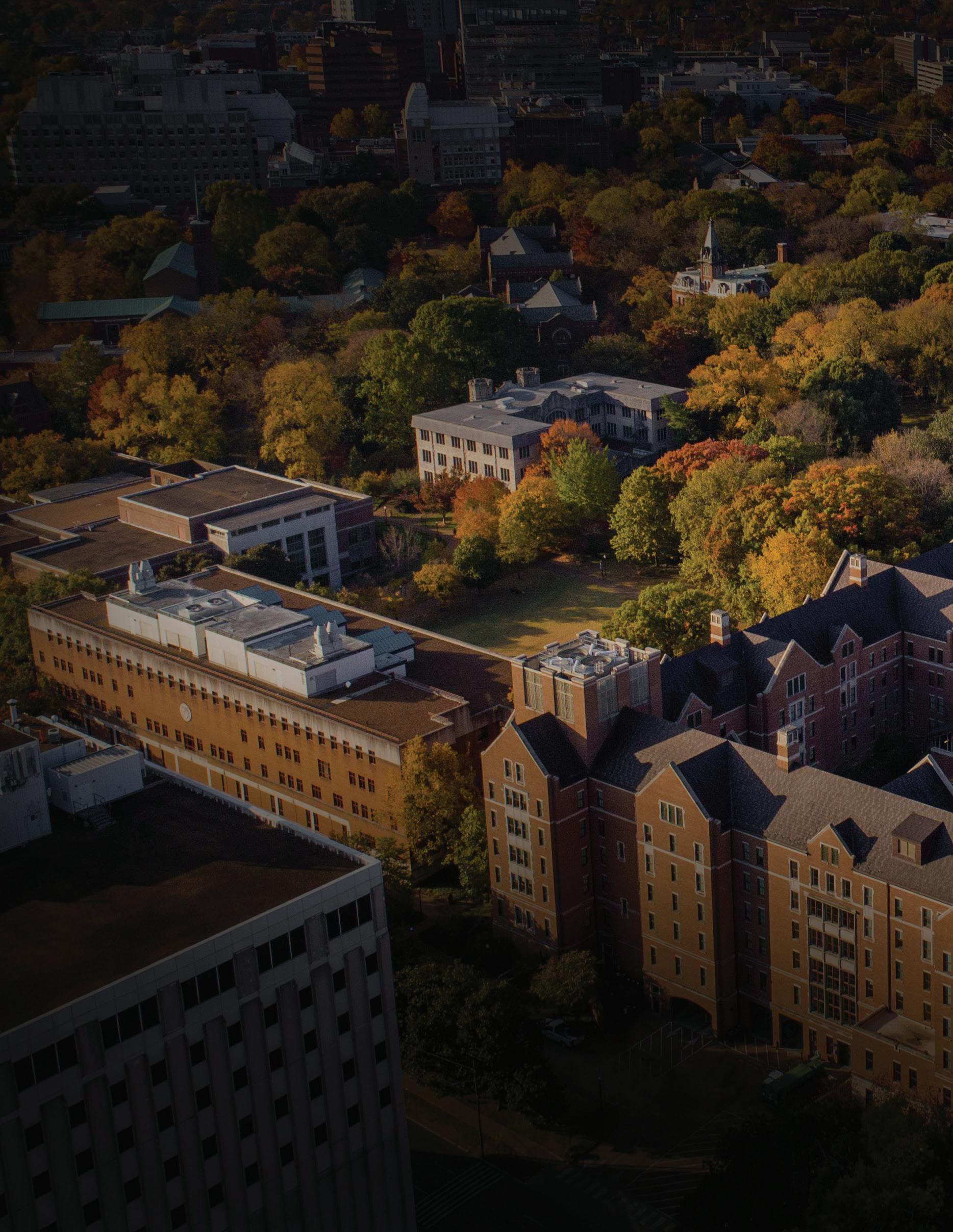
Located on Vanderbilt’s park-like campus in the heart of Nashville, Tennessee, the Law School offers the cultural diversity and advantages of life at a leading institution of higher education. Students also have the opportunity to engage with the University’s prestigious graduate and professional schools—including medicine, education, business, engineering, nursing, and divinity – through dual-degree programs and experiential learning opportunities.
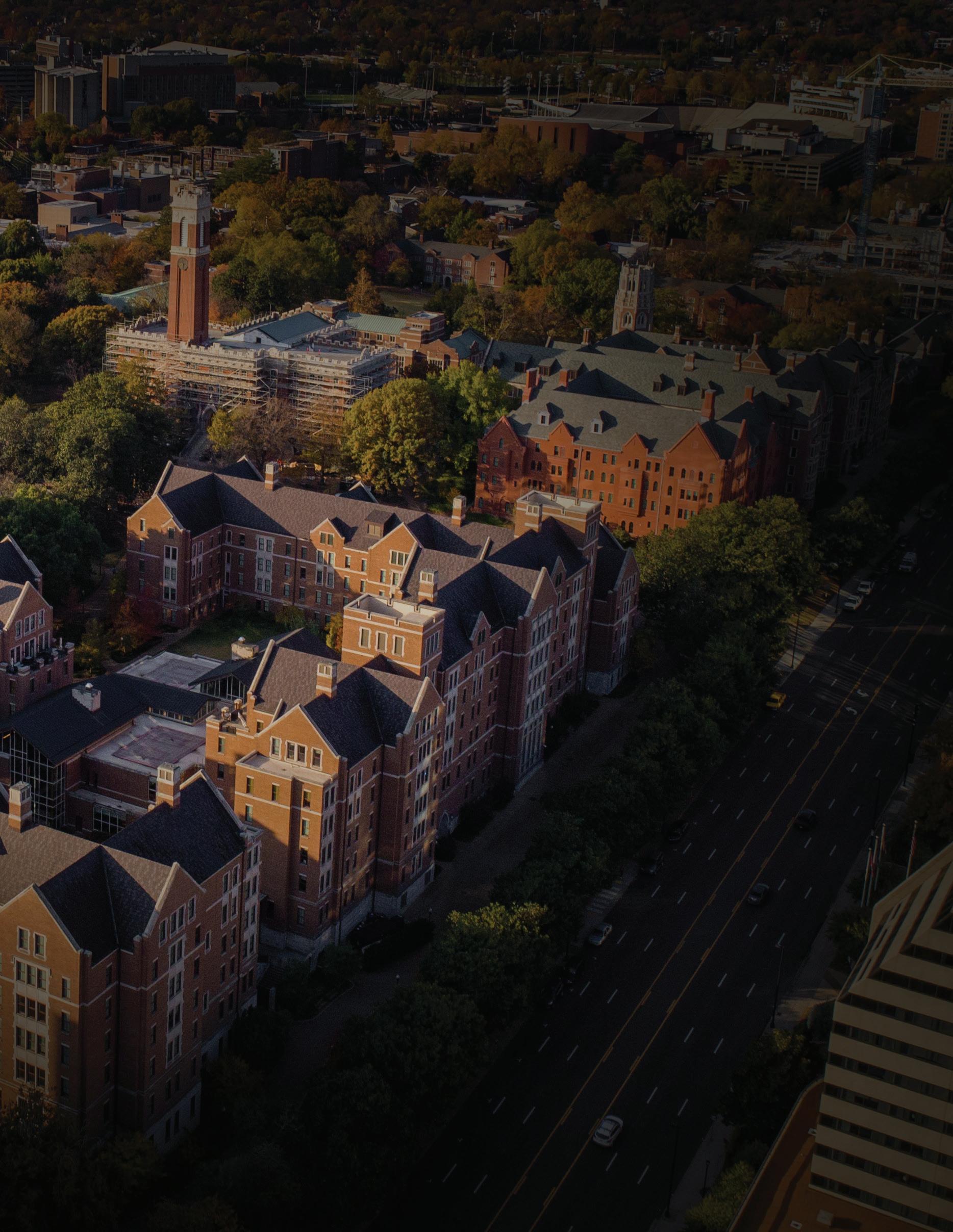
Ranking of Faculty by Scholarly Impact, Joshua Fischman (2024).
Academic Experience, Princeton Review (2024).
of Top 50 Law Schools based on employment outcomes, cost, and student debt, Above the Law (2024).
Greatest Resources for Women, Princeton Review (2024).
7 NO. NO. NO. NO. NO. 5 10 10 4
Best Professors, Princeton Review (2024).
Consistently ranked among the most productive in the nation, Vanderbilt Law professors are known nationally and internationally for their work in such areas as corporate and business law, law and economics, international law, environmental and property law, energy law, intellectual property law, criminal law, complex litigation, constitutional law, law and neuroscience, social justice, health law and policy, and bioethics.
That expertise translates into engaging coursework that takes students to the cutting edge of current legal scholarship. More than that, Vanderbilt faculty are committed teachers and mentors, and our school’s small size allows students to enjoy substantial access to faculty throughout their time in law school. Faculty work with and come to know students as individuals in and out of class, which adds greatly to the value of a Vanderbilt legal education.
Vanderbilt Law offers an unmatched opportunity to custom-build a top-tier legal education tailored to your individual goals and interests. A deep dive into the study of law and legal reasoning in the first year provides the framework for continued development of high-level fundamental skills while allowing students the chance to identify areas of law and legal practice that intrigue and inspire. Guided by faculty mentors during their second and third years, students can take advantage of our broad curriculum, an array of experiential learning opportunities, and co-curricular options to create an educational experience tailored to their individual interests and professional goals.
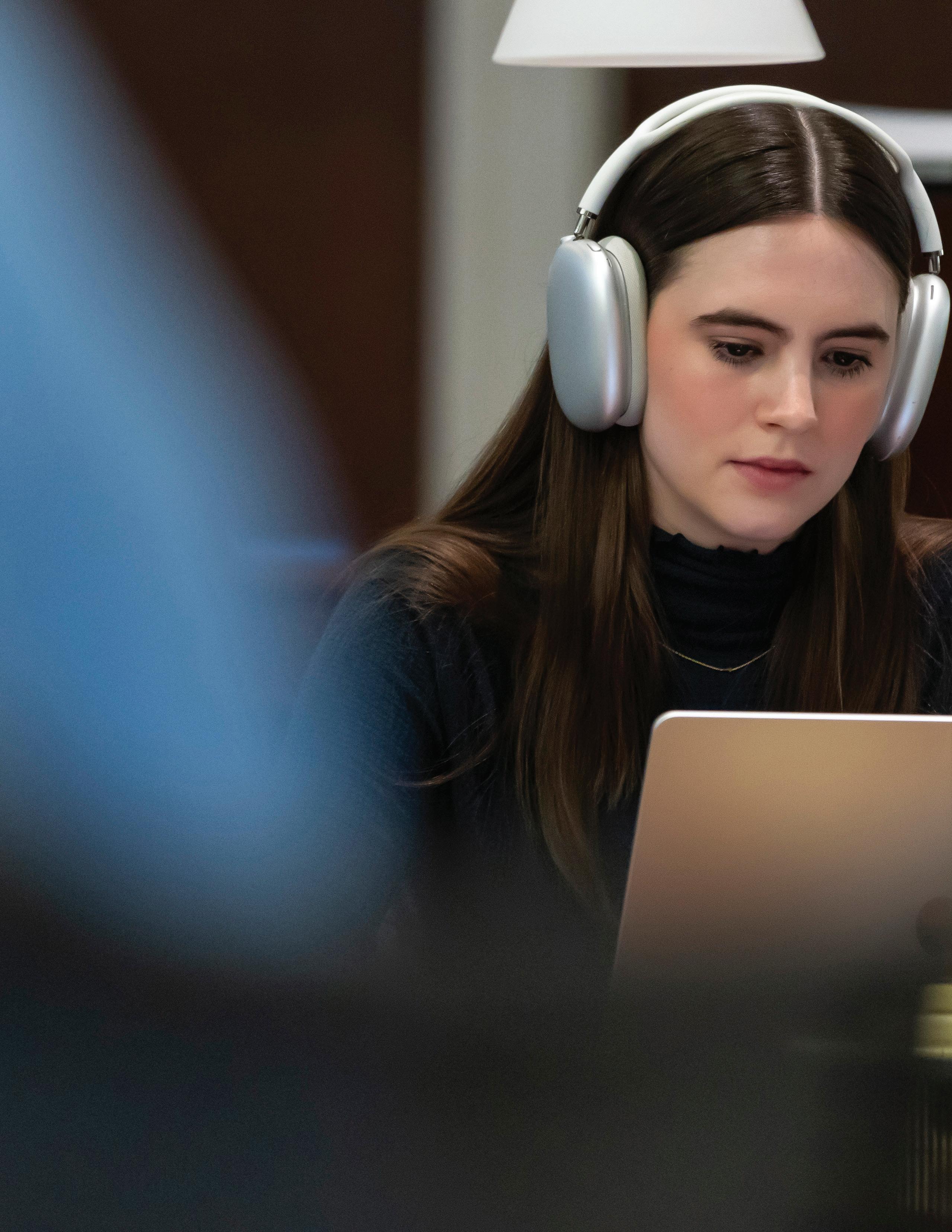
Business / Corporate Law Programs and Specialties, US News & World Report (2024).
Criminal Law Programs and Specialties, US News & World Report (2024).
Environmental Law Programs and Specialties, US News & World Report (2024).
First-year requirements provide the intellectual foundation of skills in analysis, problem-solving, advocacy, speaking, and writing on which to build a legal education. Upper-level offerings are almost entirely elective, allowing students to choose from a broad curriculum, combining courses, clinics, externships, independent work, and courses outside the law school to accomplish career goals. Second- and third-year students may also pursue specific areas of interest through the law school’s academic programs.
1L Curriculum
• Civil Procedure
• Contracts
• Criminal Law
• Legal Writing IFall semester
• Legal Writing IISpring semester
• Life of the Law
• Property
• Regulatory State
• Torts
• First Year Elective

Elective Paths for 2L and 3Ls:
• Litigation and Dispute Resolution (Page 12)
• Criminal Justice (Page 13)
• Environmental Law (Page 14)
• Social Justice (Page 15)
• Intellectual Property Law (Page 16)
• International Law (Page 17)
• Law & Government (Page 18)
• Law & Business (Page 19)
• Law & Innovation (Page 20)
“At Vanderbilt, we pride ourselves on classroom teaching. We deliver a first-rate legal education that is
thoroughly engaged with national debates and conversations.
We
want our students to experience intellectual rigor, and we also want them to feel at home and excited to be in class and to contribute to a community that is genuinely collegial and always encouraging.”
Milton R. Underwood Professor of Law, Associate Dean and Robert Belton Director of Diversity, Equity and Community

FULL COURSE CATALOG
Note that not all courses are taught every year.
Rigorous and designed for contemporary law practice, the law school’s dual-degree and interdisciplinary programs reflect Vanderbilt’s emphasis on collaboration between faculty and students across the university’s 10 schools. The law school’s location on the university’s campus, near top-ranked schools of medicine, business, engineering, and education, makes Vanderbilt an especially attractive choice for students who want to pursue a dual degree.
The MacArthur Foundation Research Network on Law and Neuroscience, a grant-funded program supported by the John D. and Catherine T. MacArthur Foundation, is headquartered at Vanderbilt University and directed by Owen Jones, Glenn M. Weaver, M.D. and Mary Ellen Weaver Professor of Law, Brain and Behavior.
The Climate Change Research Network, directed by Michael Vandenbergh, David Daniels Allen Distinguished Chair in Law, integrates faculty and students from 6 Vanderbilt schools.
Vanderbilt University Faculty who have dual appointments at the law school.
Vanderbilt’s faculty ranking among U.S. law schools in the 2024 study “Scholarly Impact of Law Faculties in 2024: Updating Leiter Scores to Rank the Top Third,” conducted by a team led by University of St. Thomas Professor Gregory Sisk. The ranking is based on citations of faculty work.
Vanderbilt Law partners with the Owen Graduate School of Management to offer highly differentiated, well-established programs:
• The J.D./M.S. Finance allows students to earn both degrees in 3 academic years.
• The J.D./M.B.A. allows students to earn both degrees in 4 academic years.
Students can also earn these degrees on campus:
• J.D./M.D. in conjunction with the Medical School.
• J.D./M.DIV. or J.D./M.T.S. in conjunction with the Divinity School.
• J.D./M.P.P. in conjunction with the Peabody College of Education and Human Development.
• A customizable J.D./M.A. or J.D./PH.D. in conjunction with the Graduate School.

Explore the dual-degree offerings at Vanderbilt Law.
Vanderbilt Law School’s Ph.D. Program in Law and Economics allows students to enter with a J.D. from any ABA-approved law school or to earn both a J.D. and a Ph.D. concurrently in a fully integrated curriculum.
The program is designed so that students complete both degrees in just 6 years. Admitted students receive a full funding package, including tuition for both degrees and a competitive annual stipend, for all 6 years of study.
The Ph.D. Program in Law and Economics offers a specialized interdisciplinary approach that integrates law and economics within a rigorous curriculum.
The core curriculum consists of 27 hours of coursework in law and economics, economic theory, and empirical analysis and then students select 2 fields of concentration from a pre-approved list of fields and take associated field courses.
The program’s director of graduate studies works with Ph.D./J.D. students to help them coordinate the course of study so that all requirements of both degrees are met.
Courses Include:
• Statistical Analysis
• Risk and Environmental Regulation
• Econometrics
• Law and Economics Theory
• Behavioral Law and Economics
• Labor Markets and Human Resources
Scan the QR code below to see the full course list for this program.
Discuss key topics with scholars from around the world who are invited to Vanderbilt to present research spanning a variety of fields and topics.
The program also hosts a variety of conferences, including the biennial Frontiers in Law and Economics (FILE) conference.
An award-winning author of more than 30 books and nearly 400 articles, his pathbreaking research has addressed a wide range of individual and societal responses to risk and uncertainty, including risky behaviors, government regulation, and tort liability. He is widely regarded as one of the world’s leading authorities on benefit-cost analysis. His estimates of the value of risks to life and health are currently used throughout the Federal government. In the Carter administration, he was deputy director of the Council of Wage and Price Stability and has served on different panels of the Science Advisory Board of the U.S. Environmental Protection Agency for over a decade.
PH.D. IN LAW & ECONOMICS
Learn more about how you can pursue your J.D. and a Ph.D. concurrently.


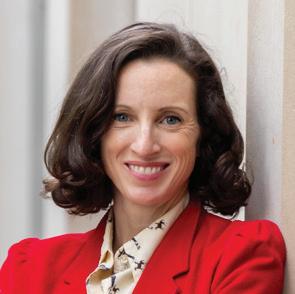
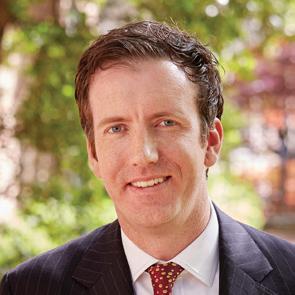
Rebecca Allensworth studies antitrust and professional licensing. Her work on antitrust focuses on how to adapt competition policy to address competition problems posed by tech platforms, and her research on professional licensing explores how lawmakers should balance the need for expertise in regulating the professions with the problems that can arise from self-regulation. Her article about medical licensing boards and unethical prescribers, “Licensed to Pill,” appeared in The New York Review of Books in July 2020. Her work has been cited by the U.S. Supreme Court and has received the thirteenth annual Jerry S. Cohen Memorial Fund Writing Award for groundbreaking antitrust scholarship.
Morgan Ricks studies financial regulation. He is the author of The Money Problem: Rethinking Financial Regulation and a co-author of Networks, Platforms, and Utilities: Law and Policy. Before entering the legal academy, Professor Ricks was a senior policy advisor and financial restructuring expert at the U.S. Treasury Department from 2009 to 2010, where he focused primarily on financial stability initiatives and capital markets policy. Prior to joining the Treasury Department, he was a risk-arbitrage trader at Citadel Investment Group and a vice president in the investment banking division of Merrill Lynch & Co.
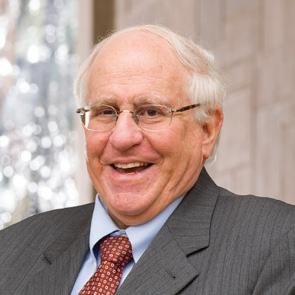
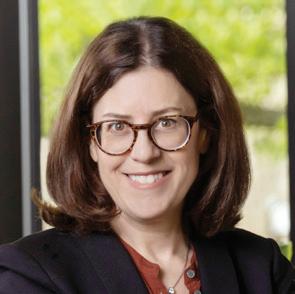
James Blumstein ranks among the nation’s most prominent scholars of health law, law and medicine, and voting rights. The director of Vanderbilt’s Health Policy Center, Professor Blumstein has served as the principal investigator on numerous grants concerning managed care, hospital management, and medical malpractice. His peers recognized his leadership in health law and policy by electing Blumstein to the National Academy of Sciences’ Institute of Medicine. Professor Blumstein served as former Tennessee Governor Phil Bredesen’s counsel on TennCare reform and has participated actively in a number of Supreme Court cases, arguing three.
Lisa Schultz Bressman is an innovative scholar in administrative law and statutory interpretation. She is one of the most cited scholars in the area of administrative law. Her recent work focuses on the Supreme Court’s rules of self-regulation and offers current snapshots of the administrative state, including an article with colleague Kevin Stack describing Chevron as a phoenix likely to rise from the ashes even if overruled, an essay examining the view of Chief Justice Roberts on the legitimacy of modern agency structure, and an essay exploring an early effort of President Biden to re-envision regulatory review.
Farhang Heydari teaches and writes about our society’s reliance on policing and the criminal law, and the impact of that reliance. His research aims to reveal new perspectives on the policy and regulatory choices available in an effort to make the system more just, effective, and equitable. Professor Heydari has a particular interest in policing technologies and the impact of artificial intelligence on the criminal system. He serves as an appointed member of the federal government’s National Artificial Intelligence Advisory Committee, Subcommittee on AI and Law Enforcement. He was the inaugural executive director of the Policing Project at New York University School of Law.
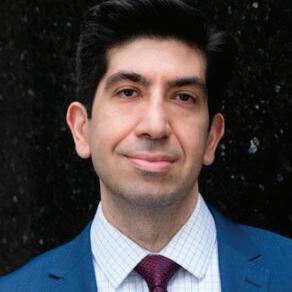
Robert Mikos is one of the nation’s leading experts on federalism and drug law. His recent scholarship analyzes the struggle among federal, state, and local governments for control of marijuana law and policy, which includes a first-ofits-kind casebook, Marijuana Law, Policy and Authority. Professor Mikos has written, consulted, testified, and lectured on the states’ constitutional authority to legalize marijuana, federal law’s influence on state regulation and taxation of the marijuana industry, and the desirability of marijuana localism.
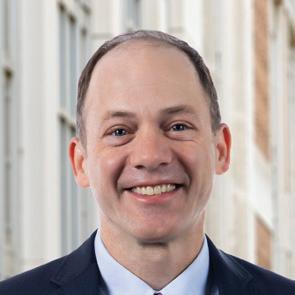
Jim Rossi is nationally recognized for his research on administrative and energy law topics. His article, “Energy Exactions,” co-authored with Christopher Serkin, received the 2020 Morrison Prize, which recognizes the most impactful sustainability scholarship published during the previous year. Professor Rossi serves on the Advisory Council of the Electric Power Research Institute, an independent research consortium that helps address technology gaps and broader social needs that can benefit from groundbreaking energy research.

J.B. Ruhl is an expert in environmental, natural resources, and property law, focusing his research on climate change adaptation, ecosystem services, and adaptive governance. His works have been selected by peers as among the best law review articles in the field of environmental law 12 times from 1989 to 2021. He co-directs the Energy, Environment & Land Use Program and directs the Program on Law & Innovation.
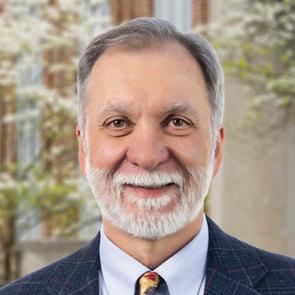
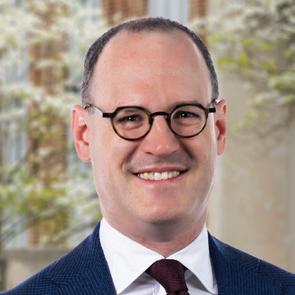
Joseph Fishman’s research focuses on intellectual property, particularly its relationship to creativity and the creative process. He is a recognized expert on music copyright matters. His recent scholarship has covered such legal issues as infringing similarity between songs, the role of expert witnesses in music copyright litigation, judges’ definition of musical originality, and trademark issues related to sound recordings. Before joining the legal academy, he practiced as an associate at Jenner & Block in the firm’s content, media, and entertainment group, where he specialized in litigation involving the music industry.
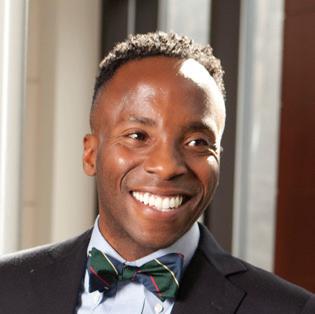
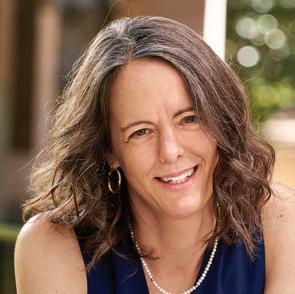
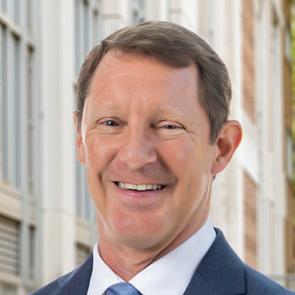
Sean Seymore’s research focuses on how patent law and policy should evolve in response to advances in science and technology. He held academic appointments in chemistry at Rose-Hulman Institute of Technology and Rowan University before earning his law degree, after which he practiced patent law at Foley Hoag in Boston. He is an elected member of the American Law Institute. Professor Seymore serves as Director of Undergraduate Studies, Minor in Legal Studies.
Ingrid Brunk is a leading scholar of foreign relations, public international law, and transnational litigation. She is currently co-editor-in-chief of the American Journal of International Law, a member of the American Law Institute, and a Reporter for the Restatement (Fourth) of the Foreign Relations Law of the United States. Professor Brunk is also a contributing editor at Lawfare and a founding editor of the Transnational Litigation Blog. She directs the Branstetter Litigation & Dispute Resolution Program.
Michael Newton is an expert on terrorism, accountability, transnational justice, and conduct of hostilities issues. He is admitted to the Counsel List of the International Criminal Court, where he helped prepare the appeal of Jean-Pierre Bemba and has participated in oral arguments at the Appeals Chamber in other cases. He has spent his career coordinating U.S. support to accountability mechanisms across the world, including Iraq, Sierra Leone, and Ukraine, and has worked with the U.S. State Department and U.N. in a variety of capacities. Professor Newton directs the International Legal Studies Program, International Law Practice Lab, and Vanderbilt in Venice.
Joni Hersch is an economist who works in the areas of employment discrimination and empirical law and economics. Her research focuses on the influence of gender, race, national origin, skin color and family background on labor market outcomes, higher education and inequality. She is the author of Sex Discrimination in the Labor Market (Foundations and Trends in Microeconomics, 2006) and co-editor of Emerging Labor Market Institutions for the Twenty-First Century. Professor Hersch is a co-founder and co-director of the Ph.D. Program in Law and Economics.

Jennifer Bennett Shinall’s research focuses on discrimination, particularly in the areas of gender and disability. Her research, which has been published in peerreviewed economic journals and law journals, examines how obesity, pregnancy, and health status more generally affect labor market outcomes. Her work further considers how these effects may differ by gender and how the legal system can address any observed disparities. Professor Shinall was the first graduate of the Ph.D. Program in Law and Economics at Vanderbilt University.
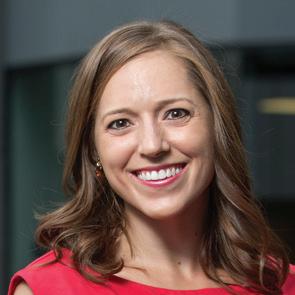
Terry Maroney investigates the intersection of law and emotion. She is also a scholar of criminal law, with specializations in wrongful convictions and juvenile justice. Professor Maroney’s work illuminates how emotional experiences, dynamics, and their management interact with the constraints and demands of varied judicial roles, with deep implications for judges and the public they serve. Her many publications in this area have been widely read among the U.S. judiciary. She co-founded a novel intensive seminar focused on the human side of judging, now offered regularly to mid-career federal judges.
Lauren Sudeall’s research focuses on access to the courts, both civil and criminal, and how lower-income individuals engage with the legal system, either with a lawyer or on their own. Professor Sudeall directs the Vanderbilt Access to Justice (AtJ) Initiative. She is also a member of the American Law Institute and currently serves as an Associate Reporter for Principles of the Law, HighVolume Civil Adjudication. She has also served on the Southern Center’s board of directors, the ABA Standing Committee on Legal Aid & Indigent Defendants, the Indigent Defense Committee of the State Bar of Georgia, and as chair of the AALS Section on Constitutional Law

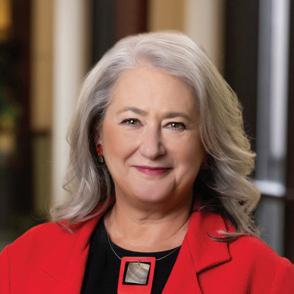
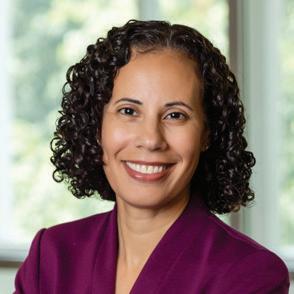
Explore our full faculty directory for more professors and details on their research and expertise.
The Branstetter Litigation & Dispute Resolution Program prepares students for the real world of litigation practice by acquainting them with the wide variety of ways that disputes are resolved, including arbitration, court-supervised settlement, mediation, negotiation, and trial. The program boasts an advanced legal curriculum designed to enable students to step immediately into sophisticated litigation practice.
Vanderbilt’s law faculty includes experts in all aspects of litigation, including civil procedure, evidence, trials, juries, sentencing, appeals, transnational litigation, federal courts, the judiciary and judicial selection. Adjunct faculty include federal judges, assistant U.S. attorneys, vice chancellors of the Delaware Court of Chancery, Metro Nashville public defenders, and high-profile corporate and criminal defense lawyers.
Part of an ongoing effort to introduce students to a broad range of perspectives from judges who represent different types of courts, justices and judges typically spend a day in residence at the law school, where they serve as guest lecturers, meet with student groups, and deliver a lecture to the law community.
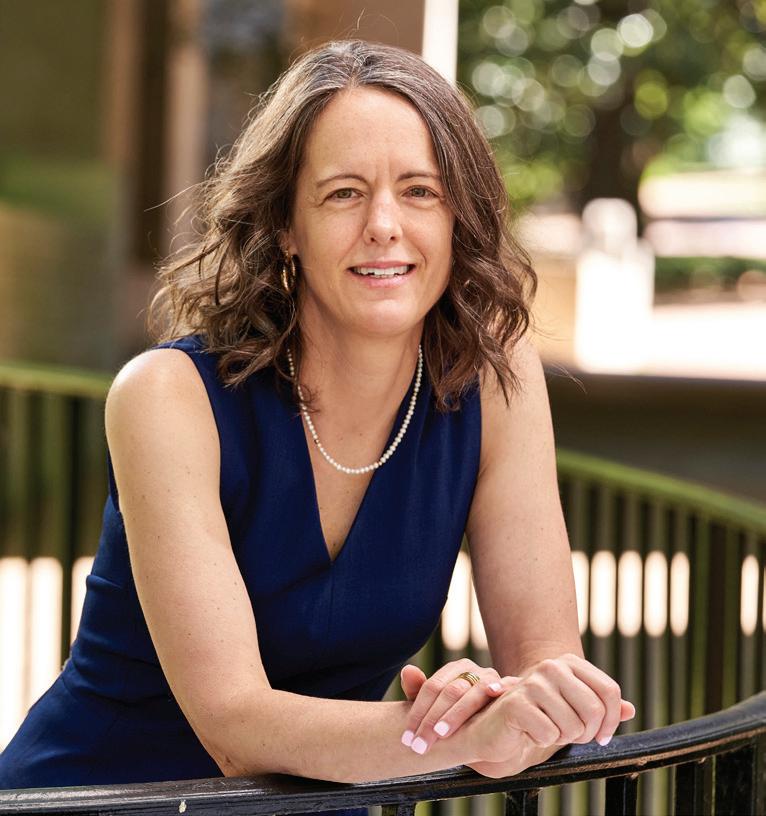
Courses Include:
• Complex Litigation
• Negotiation
• Corporate Litigation
• Conflict of Laws
• Mediation
• Criminal Procedure: Investigation
Scan the QR code below to see the full course list for this program.
Each year, the program selects up to 10 Branstetter Summer Fellows, who receive a whole summer stipend or partial summer stipend to work in unpaid summer internships with a nonprofit or government organization where they will gain meaningful litigation experience.
Professor Ingrid Brunk is a leading scholar of foreign relations, public international law and transnational litigation. She is currently co-editor-in-chief of the American Journal of International Law, a contributing editor at Lawfare, and a founding editor of the Transnational Litigation Blog.
Professor Brunk is a member of the American Law Institute and was named as a Reporter for the Restatement (Fourth) of the Foreign Relations Law of the United States.

BRANSTETTER LITIGATION
Explore the program’s curriculum, faculty, and more.
Vanderbilt’s Criminal Justice Program offers students a thorough grounding in the theory and practice of criminal law and procedure. The program’s curriculum blends cutting-edge theory with ample opportunities to gain practical skills through clinics and externships in the offices of prosecutors and public defenders. The Criminal Justice Program’s faculty stands among the best in the nation.
Every first-year student takes Criminal Law, which introduces students to the purposes of criminal punishment, the structure of criminal statutes, and basic liability and sentencing rules. In their second and third years, students may choose from an array of electives. Two criminal procedure courses, offered annually, cover regulation of the police, including search and seizure and interrogation rules, and “bail-to-jail” issues such as preliminary hearings, plea bargaining, the right to jury trial, double jeopardy, sentencing, and habeas corpus.
• Juvenile Justice
• Mental Health Law
• Policing in the 21st Century
• Actual Innocence
• Drug Law & Policy
• International Criminal Law
Scan the QR code below to see the full course list for this program.
The Vanderbilt Project on Prosecution Policy (VPOPP) is a nonpartisan network of prosecutors, researchers, students, and other stakeholders dedicated to improving individual and collective outcomes in the criminal justice system. Through trainings, research, conferences, and technical assistance, VPOPP engages criminal justice leaders, particularly prosecutors in the South, to develop and implement policies and programs that reduce unnecessary incarceration and promote public safety.
Professor Christopher Slobogin has authored more than 200 articles, books, and chapters on topics relating to criminal law and procedure, mental health law, and evidence. He is one of the five most cited criminal law and procedure law professors in the country between 2016-2020, according to the Leiter Report. He is the only law professor to win both the American Board of Forensic Psychology’s Distinguished Contribution Award and the American Psychology-Law Society’s Distinguished Contribution of Psychology and Law Award.
Explore the program’s curriculum, faculty, and more.

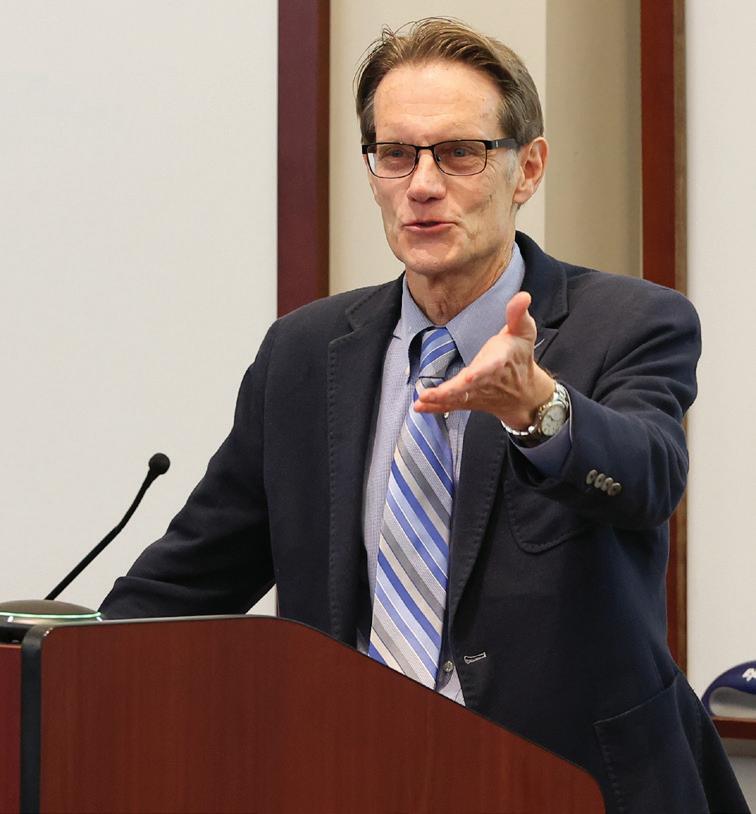
The Energy, Environment & Land Use Program (EELU) prepares students for careers in these rapidly evolving areas of law at government agencies, law firms, and legal nonprofits by offering a broad curriculum of courses focusing on key regulatory regimes, along with research opportunities, a student-edited journal, and internships.
Students have considerable opportunities to write scholarly papers for journals, enter writing competitions, and work with EELU program faculty on cutting-edge scholarship.
They may also serve as EELU Fellows, co-authoring white papers on key energy, environmental, and land use issues. On top of having their writing published in academic journals, students have won the prestigious national Burton Award, the ABA’s energy law writing competition, and other important national writing competitions.
10
Environmental Law Programs & Specialties, US News & World Report (2024).
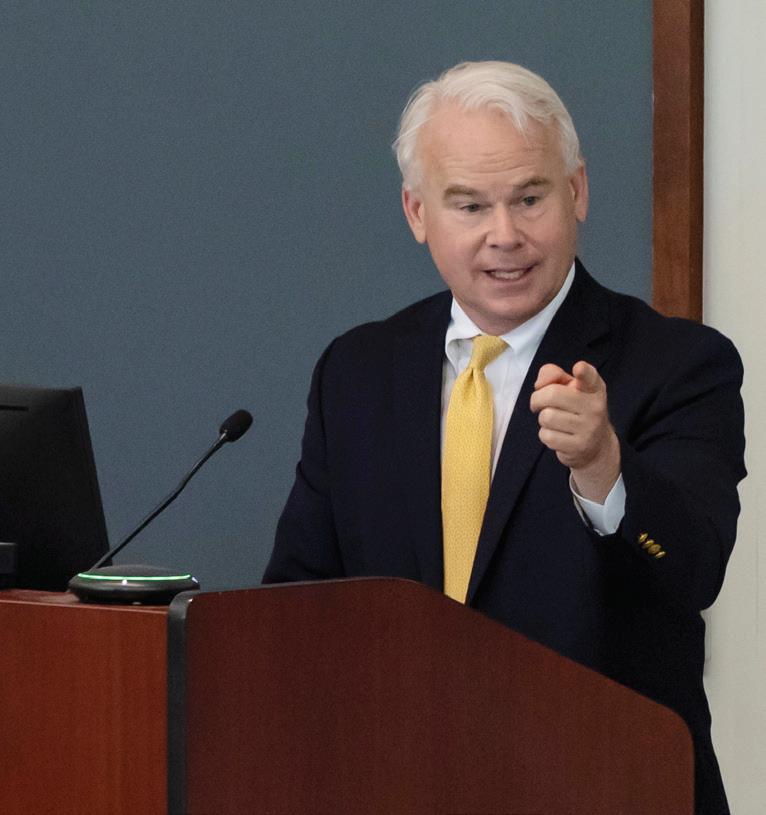
Courses Include:
• Climate Change Law & Policy Lab
• Energy Law
• Land Use Planning
• Water Law
• Sustainable Cities
• Decarbonization and the Public Utility
• Property Law and Torts
• American legal system in The Regulatory State
Scan the QR code below to see the full course list for this program.
Professor Michael Vandenbergh is an award-winning teacher and scholar whose research focuses on working with interdisciplinary teams to explore environmental governance, environmental behavior and climate change. His research has developed the concept of private environmental governance and explored how private governance initiatives can address polarization and other barriers to climate change mitigation. A former chief of staff of the Environmental Protection Agency, Professor Vandenbergh is one of the top 25 law professors in the US based on peer-reviewed literature citations.

ENERGY, ENVIRONMENT & LAND USE
Explore the program’s curriculum, faculty, and more.
Law school is where each attorney’s unique path to building a better world through law first takes shape. The George Barrett Social Justice Program promotes a dynamic atmosphere in which students and faculty focus on issues of equality, access, and service—both inside and outside the classroom.
The program sponsors guest speakers, conferences, workshops, and a variety of activities for students and faculty. Each year, the program recognizes a Social Justice Fellow, a distinguished member of the bar who has devoted his or her career to public interest law. During an on-campus residency, the Fellow gives a public lecture, presents to the faculty, and offers individual student mentoring sessions.
Students gain invaluable hands-on experience through clinical courses, pursue volunteer opportunities through student organizations such as the Legal Aid Society and Law Students for Social Justice, take the Pro Bono Pledge to devote time each year to public service, participate in a Pro Bono Spring Break, and spend a summer or semester interning at a public interest organization or government agency.
Professor Daniel Sharfstein’s scholarship focuses on the legal history of race in the United States. He received a 2013 Guggenheim Fellowship to support his work on a book-length exploration of postReconstruction America, Thunder in the Mountains: The Clash of Two American Legends, Oliver Otis Howard and Chief Joseph of the Nez Perce. His first book, The Invisible Line: Three American Families and the Secret Journey from Black to White, won the 2012 J. Anthony Lukas Book Prize, the Law & Society Association’s 2012 James Willard Hurst Jr. Prize, the William Nelson Cromwell Book Prize, and the Chancellor’s Award for Research from Vanderbilt.
GEORGE BARRETT SOCIAL JUSTICE
Explore the program’s curriculum, faculty, and more.

Courses Include:
• Legal History of Race in the United States
• Education Law
• Employment Law
• Family Law
• Immigration Law and Policy
• Juvenile Justice
• Mental Health Law: Deprivations of Life and Liberty
• Non-Litigation Strategies for Change in Public and Social Policy
Scan the QR code below to see the full course list for this program.

Intellectual property is one of the most vibrant and challenging areas of today’s legal profession. Emerging technologies are transforming the role communications networks and content play in our lives, and information has become globally accessible. Attorneys must be prepared to navigate an expanding array of rapidly evolving legal regimes. Clients need lawyers who are well prepared to help them thrive in this dynamic environment. The Vanderbilt Intellectual Property Program prepares Vanderbilt Law graduates to meet this challenge.
Students learn IP law basics in introductory courses— Intellectual Property, Copyright Law, Patent Law, and Trademarks—and gain practical experience in the Intellectual Property and the Arts clinic and the Patent Litigation practicum. They also explore advanced topics, including international intellectual property law, intellectual trade law, comparative copyright law, sports law, music and copyright, entertainment law, artificial intelligence, the law of cyberspace, and science and technology law.
The Music Law Summit welcomes an array of scholars and industry professionals to discuss key legal events in the music industry. The inaugural event featured incredible programming, cutting-edge discussion, and lively debate on the impact of generative AI on the music industry.
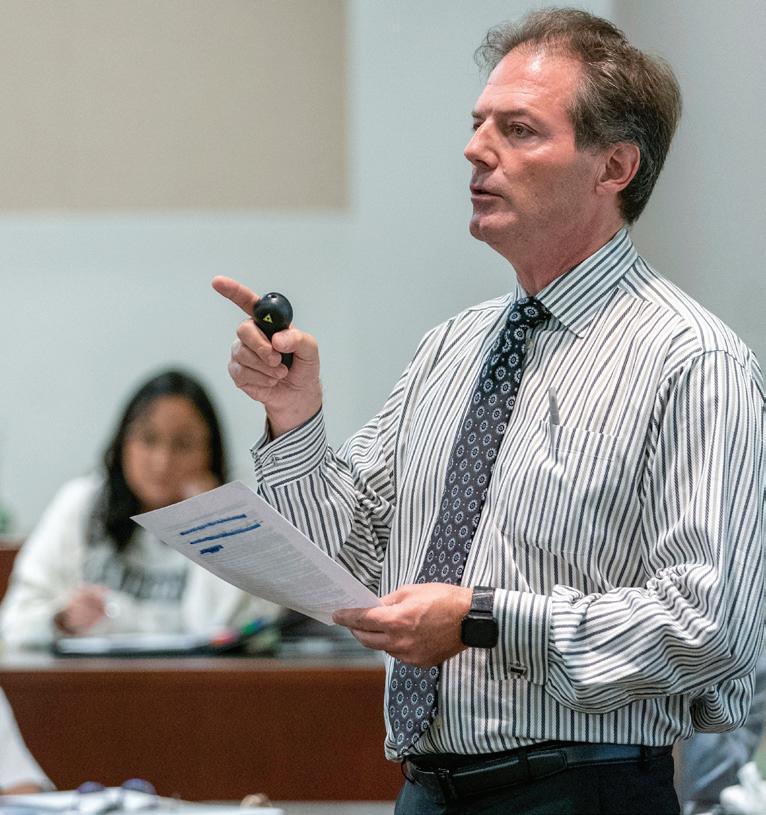
• Copyright Law
• Entertainment Industry
Transactions: Negotiation and Drafting
• Intellectual Property Licensing
• Patent Law
• Trade Secrets
Scan the QR code below to see the full course list for this program.
Professor Daniel Gervais focuses on international intellectual property law and the law of artificial intelligence. Prior to joining the academy, he served as a legal officer at the World Trade Organization, head of the Copyright Projects section of the World Intellectual Property Organization, deputy secretary general of the International Confederation of Societies of Authors and Composers (CISAC), and vice chair of the International Federation of Reproduction Rights Organizations. He is the author of The TRIPS Agreement: Drafting History and Analysis, a leading guide to the text that governs international intellectual property rights.

Explore the program’s curriculum, faculty, and more.
The International Legal Studies Program equips students to practice international law in their field of choice through a broad array of courses taught by renowned scholars and practitioners, internships where students gain practical experience, and the International Law Practice Lab, where students do high-impact work for clients around the globe. High-profile international practitioners and scholars visit Vanderbilt throughout each academic year to teach short courses, deliver talks, and mentor students. Students can expand their exposure to cutting-edge legal scholarship by joining the staff of the highly ranked Vanderbilt Journal of Transnational Law.
Vanderbilt offers an array of scholarships for students seeking careers in international law that include financial support for summer and semester internships. Students may apply for the Raymonde Paul Scholarship, which includes tuition for Vanderbilt in Venice, an opportunity to study selected topics in international law for 4 weeks in the rich cultural center of Venice, Italy. First-year students may apply for the Helen Strong Curry International Law Scholarship, which provides support for the remaining 2 years of law school. Students may conduct paid work through 2 State Department grants the program administers. Funding for interns’ living expenses is available from Vanderbilt University and Vanderbilt Law School.
• Comparative Perspectives on Counterterrorism
• Foreign Affairs
• Transnational Litigation
• United Nations Law and Practice
• Banking, and Securities Regulation
• Trade Law
• Human Rights
• Counterterrorism
Scan the QR code below to see the full course list for this program.
Professor Michael Newton is an expert on terrorism, accountability, transnational justice, and conduct of hostilities issues. Over the course of his career, he has published more than 90 books, articles, op-eds and book chapters. He has been an expert witness in terrorism related trials both in domestic courts and at the International Court of Justice. Professor Newton has been involved in coordinating U.S. support to accountability mechanisms worldwide, both at the international and domestic levels.
Explore the program’s curriculum, faculty, and more.


The Program in Law & Government aims to encourage teaching, scholarship, and intellectual engagement in structures of government, the allocation of powers among governmental institutions, and limitations on those powers. Disputes in these areas touch on fundamental values of the legal order and speak to some of the most vexing and interesting issues of our time. The program offers classes, lectures, panel discussions, and conferences each year designed to expose students to a wide range of scholarly perspectives—legal, political, historical, philosophical, and economic—that inform the practice of public law in the United States and abroad.
The Program in Law & Government is Vanderbilt Law School’s largest and most intellectually diverse initiative, with 24 core law faculty and an additional 10 affiliated university faculty. The program also strives to reach beyond the law school. One aspect of this aspiration is a new educational series that provides public officials with forums for discussing and learning about the latest developments in American constitutional law.
A Discovery Vanderbilt initiative, VPA focuses on a small number of cutting-edge topics in political economy and regulation, bringing research, education, and policy proposals in these areas from infancy to maturity and periphery to centrality. VPA operates at a pace that aligns with the urgency of today’s challenges.

• American Legal History
• Appellate Practice and Procedure
• Federal Courts and the Federal System
• First Amendment Constitutional Law
Scan the QR code below to see the full course list for this program.
A long-time advisor to Elizabeth Warren, Professor Ganesh Sitaraman’s work, which includes 5 books, addresses issues in constitutional, administrative, and foreign relations law and public policy. He is a public member of the Administrative Conference of the United States, a member of the American Law Institute, a senior fellow at the Center for American Progress, and a co-founder of the Great Democracy Initiative. He serves on the boards of The American Prospect, the American Constitution Society, and Foreign Policy for America. Professor Sitaraman has been profiled in The New York Times and Politico for his work at the nexus of politics and ideas.

Explore the program’s curriculum, faculty, and more.
Vanderbilt’s Law & Business Program offers an innovative, intensive upper-level curriculum to students interested in a career in business law. The program allows students to build expertise in business law, corporate management, accounting, and finance by choosing among an extensive array of elective courses, including intensive transactional courses and seminars, without extending their studies beyond the normal 3-year J.D. program.
Graduates of the Law & Business Program are prepared to enter legal practice with a solid understanding of the basic principles of finance and accounting, how businesses work, the ways in which the increasingly complex regulatory environment impacts publicly traded companies, their managers and their directors, and how to work effectively with businesspeople to help them navigate laws and regulations governing business activities. Graduates who fulfill the program’s requirements receive a certificate of specialization in Law and Business along with their degree.
Courses Include:
• Corporate Litigation
• Industry Transactions: Negotiations and Drafting
• Role of the In-House Counsel
• Financial Markets: Past, Present and Future
Scan the QR code below to see the full course list for this program.
James H. Cheek III, J.D. ‘67, generously established the Cheek Business Law Scholarship and the Cheek Summer Stipends to provide financial support for deserving students participating in the Law & Business Program. Each year, the law school selects at least one Cheek Business Law Scholar to receive supplemental scholarship funds for their second and third years of study completing the Certificate in Law & Business, and Cheek Summer Stipends support experiential opportunities in certain government agencies, courts, or other settings that enhance preparation for a career in business law.
Professor Randall Thomas has earned a reputation of being one of the most productive and thoughtful corporate and securities law scholars in the nation. His work addresses issues such as hedge fund shareholder activism, executive compensation, corporate voting, corporate litigation, shareholder voting, and mergers and acquisitions. Twelve of his papers have been selected by his peers as among the Ten Best Corporate and Securities articles in the year they were published by Corporate Practice Commentator.
LAW & BUSINESS
Explore the program’s curriculum, faculty, and more.


The law, the legal services industry, and legal education are all undergoing unprecedented transformations because of rapid social, economic, and technological changes. Vanderbilt’s Program on Law & Innovation (PoLI) is designed to equip Vanderbilt Law students with what they need to successfully navigate and influence the directions in which these changes take law, and the legal industry, throughout their careers. PoLI’s curriculum and activities focus on four related themes: 1) The Legal Industry, 2) Legal Technologies, 3) Legal Innovation and Entrepreneurship, and 4) Access to Legal Services.
The Program on Law & Innovation offers an innovative curriculum designed to prepare Vanderbilt Law students to thrive in a rapidly changing environment. Beginning with Law Practice 2050, the program’s anchor course, students explore scenarios for future social, economic, technological, and environmental change and learn to anticipate the corresponding impact on legal services. Courses teach students to exploit advancements in legal search engines, electronic document review, and emerging legal solution platforms, explore the laws of cyberspace, and learn how law firms, in-house legal departments, and alternative legal business structures operate.
Courses Include:
• Design Your Life in the Law
• Blockchains and Smart Contracts
• Law of Cyberspace
• Robots, Artificial Intelligence, and the Law
Scan the QR code below to see the full course list for this program.
An initiative of PoLI, the Vanderbilt AI Law Lab (VAILL) is focused on the AI of law from a humancentered perspective. The lab is dedicated to exploring how AI can improve our legal systems and create greater access to legal help for more people. To do this, we champion radical collaboration and experimentation because VAILL is not simply a lab; it’s a hub where innovative minds converge to reimagine the future of law through the lens of AI.
VAILL expands the PoLI curriculum with a deep focus on AI, equipping our students with the necessary tools and knowledge for modern legal services delivery.

Professor Caitlin “Cat” Moon is the Director of Innovation for the Program of Law & Innovation and designs the J.D. curriculum for PoLI with the goal of empowering students to lead in the innovation of 21st century legal services delivery. In addition to her roles at Vanderbilt, Moon works with law firms, legal departments, and law schools globally to apply the methods and mindsets of human-centered design to re-imagine leadership and legal professional formation and modernize the delivery of legal services.

Explore the program’s curriculum, faculty, and more.
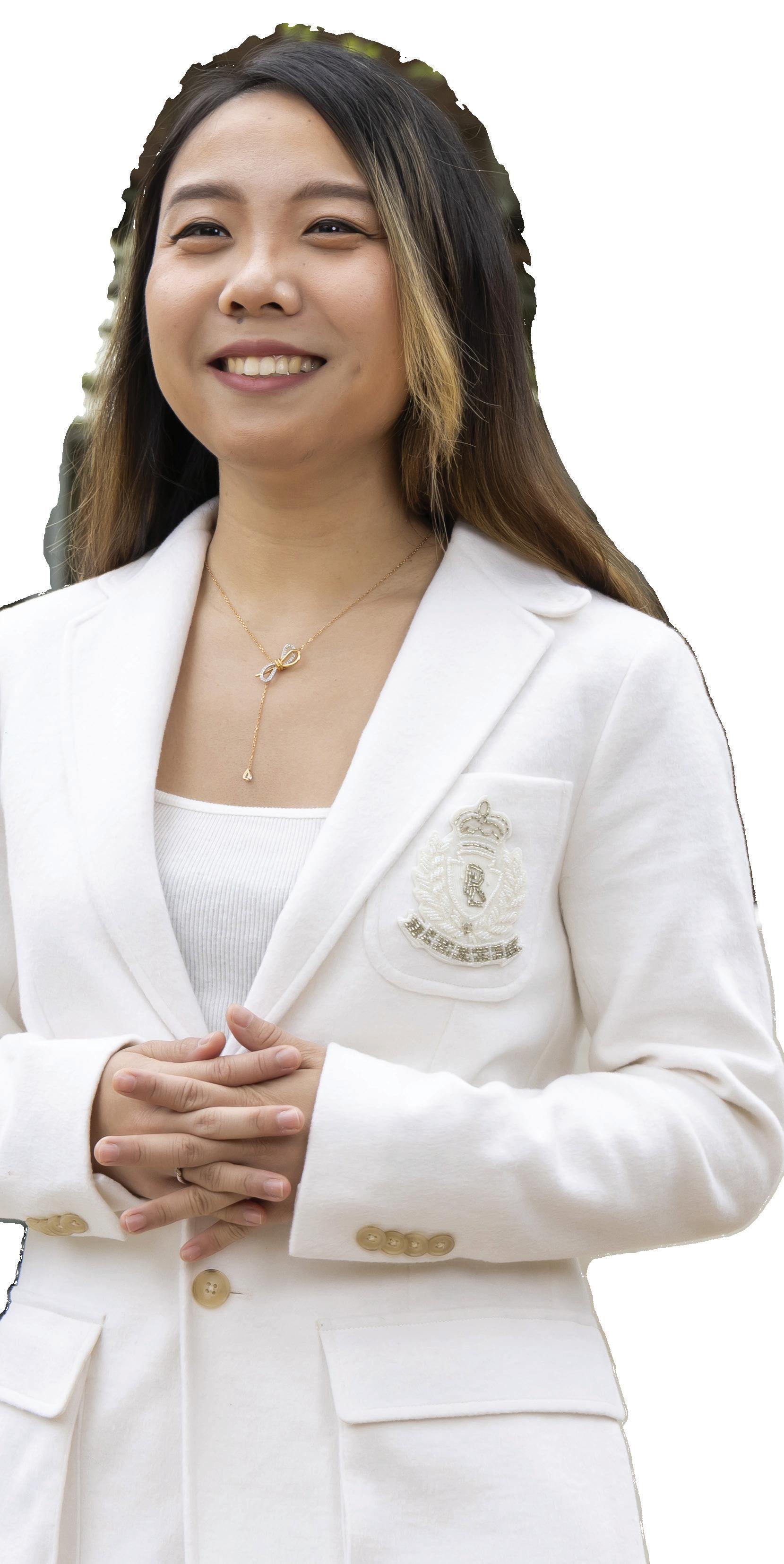
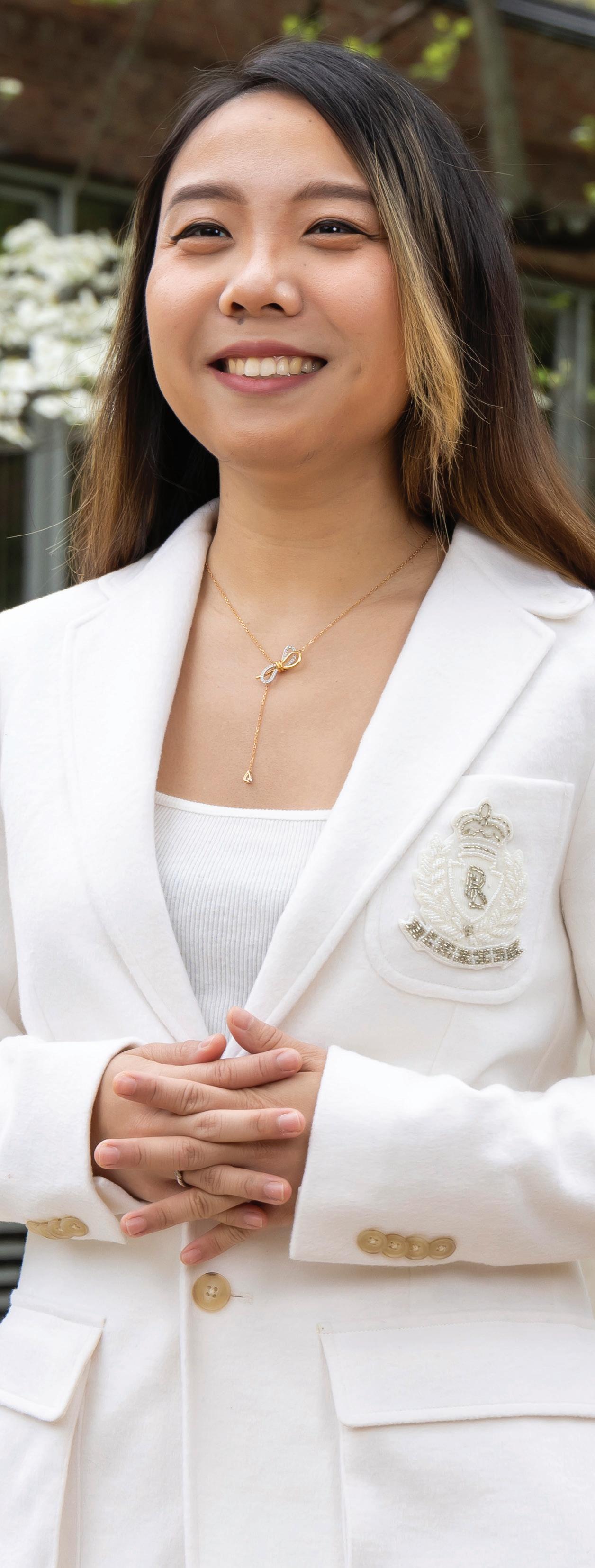
“The more I integrated with the law school, especially the professors, the more I wanted to spend additional time here, because it’s so valuable. I’ve made a lot of friends. There are plenty of opportunities to connect with the people you want to connect with.”
6.1:1
Student-to-Faculty Ratio, US News & World Report (2024).
Vanderbilt’s 8 legal clinics enable students to gain real-world legal experience under the expert guidance of members of the law faculty. Working under close supervision, students represent clients in state and federal courts, administrative proceedings, transactions, and other matters. They also complete substantive legal research in support of government agencies, international institutions, and international tribunals.
Students have won cases in the U.S. Court of Appeals for the Sixth Circuit and in federal district courts, obtained postconviction relief on behalf of clients convicted of murder and other crimes, obtained relief for clients facing deportation, prosecuted trademark applications before the U.S. Patent and Trademark Office, assisted in major international human rights prosecutions and defenses, helped parents obtain educational accommodations, and appeared in every level of state, federal, and administrative tribunal in Tennessee.
Students learn to apply the knowledge of the law they gain in other courses to actual legal cases. Clinics afford an opportunity to delve into a particular area of law, but students in all clinics learn lawyering skills they can apply to all aspects of legal practice, as well as an in-depth understanding of the legal system and its participants. Equally valuable, students gain a working understanding of their role as lawyers and the expectations, professional responsibilities, and challenges presented by that role.
Students in Vanderbilt’s clinics advance their skills in interviewing and counseling, factual development, legal research, negotiation, advocacy, and the development of legal documents ranging from pleadings and amicus briefs to treaties.

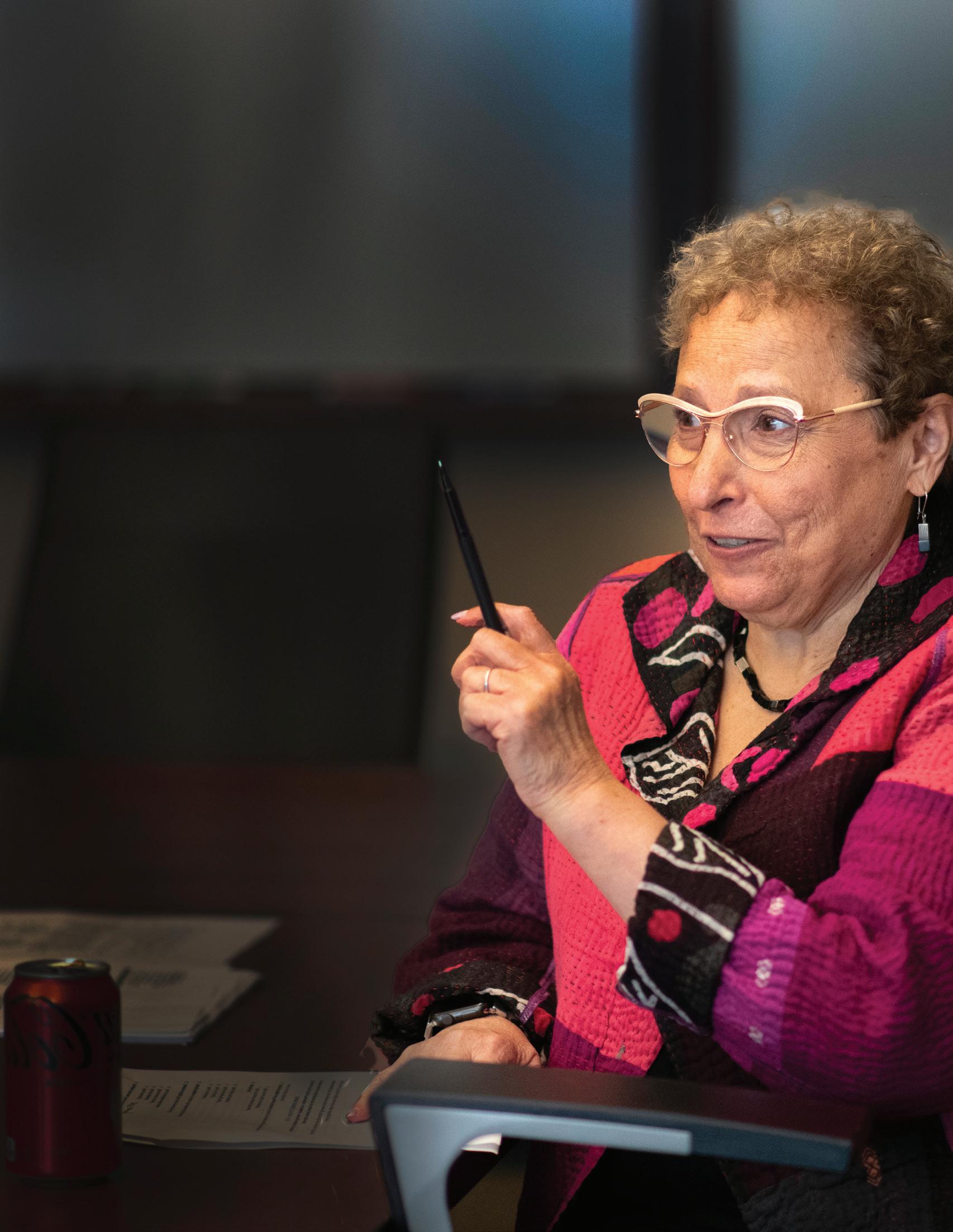
CLINCS & MORE
Browse through all of our clinics and experiential learning opportunities.
“Clinics bridge the gap between the actual practice of law and the doctrine and theory students study in other classes. They’re integral to the learning experience, and both are essential.”
SUSAN KAY ‘79
Associate
Dean
for Experiential Education
Students in the Criminal Practice Clinic obtain experience in pretrial, trial, and post-conviction matters under the close supervision of clinical faculty. Students represent individuals charged with felonies from indictment through disposition - either trial or plea negotiation and sentencing - and, in some instances, on appeal. In addition, students handle post-conviction relief petitions on behalf of persons in prison. The clinic includes a series of introductory classes on the lawyering process and relevant issues of substantive law and procedure.
“While working in the criminal clinic, I actually had the opportunity to argue my client’s case to the Tennessee Criminal Court of Appeals. It was definitely a lifechanging moment. I learned how to truly defend a client on an appeal. It further helped me learn how to prepare for arguments for an appellate court as well as thinking on my feet and formulating appropriate arguments.”
Davidson County Juvenile Judge
The Stanton Foundation First Amendment Clinic introduces students to civil litigation implicating First Amendment rights of persons and organizations otherwise unable to afford counsel for those matters. Casework focuses on free speech, freedom of the press, and freedom of assembly. Through, and in preparation for, the representation of their clients, students will learn the foundational principles of current First Amendment doctrine, including prior restraint, time/place/manner restrictions, content and viewpoint discrimination, and the intersection of the rights protected by the Amendment.
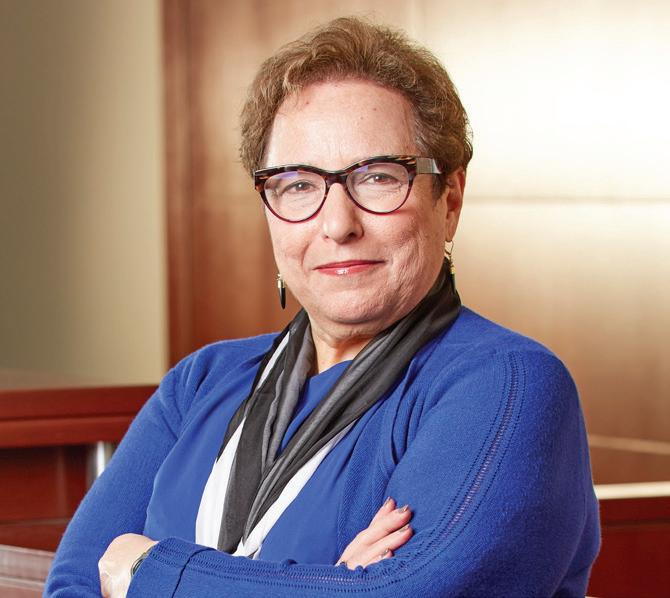


MEET THE CLINIC DIRECTOR: Susan Kay, Associate Dean for Experiential Education, Clinical Professor of Law


MEET THE CLINIC DIRECTOR: Jennifer Safstrom, Assistant Clinical Professor of Law


MEET THE CLINIC DIRECTOR:
Alvaro A. Manrique Barrenechea, Assistant Clinical Professor of Law


MEET THE CLINIC DIRECTOR:
Jennifer Prusak, Associate Clinical Professor of Law
Students have full responsibility for defending clients against deportation in the Memphis Immigration Court, the Board of Immigration Appeals, and the federal courts of appeals. They write complex legal briefs, argue cases, conduct fact investigations, interview witnesses and clients, and represent clients in administrative law trials. They also engage advocacy in partnership with local and national immigrants’ rights organizations.
Under the mentorship of the clinic director, students represent vulnerable low-income immigrants before the immigration agencies, the Department of Homeland Security, the Department of Justice, and federal courts in humanitarian immigration cases.
“Serving as a student attorney in the Immigration Practice Clinic developed me as an advocate in ways no other academic experience has. The most significant part of the experience was learning to create a culture within the attorney-client relationship that made a deeper understanding of the client’s story, hopes, and concerns possible.”
Students represent low-income tenants and homeowners from across Tennessee in a wide variety of matters that directly impact their housing. This work includes defending clients in eviction and foreclosure actions, representing them in Fair Housing claims, working with local housing authorities to protect federally subsidized housing benefits, and negotiating settlements with private landlords. Students also work with governmental and nonprofit agencies to create educational materials for tenants and homeowners and effect state-level policy change.
Students take primary responsibility and decisionmaking authority for their cases under the mentorship of the clinic director. Classes provide a strong foundation in substantive housing law and focus on the impact of housing insecurity on families and children, the lack of adequate affordable housing options in Nashville, and the ways in which people of color are disproportionately impacted by evictions and foreclosures.
The field of international law is one of the most dynamic areas of legal practice, and its principles are increasingly applied by practitioners addressing complex problems on behalf of their clients. Students in the Practice Lab draft treaties, legal and policy briefs, and legal guidelines for international courts. They also develop legal and policy positions for governments and NGOs addressing human rights, criminal justice, and other transnational issues. Vanderbilt Law graduates have accepted offers from top law firms in areas related to projects undertaken as part of the Practice Lab.
“The International Law Practice Lab was both enlightening and practical. We learned about treaty formatting and negotiation strategies, and we also worked on group research projects for real clients. Students researched new arguments for the European Court of Human Rights on extraterritorial justice and the Right to Protect, while others worked for the State Department or with lawyers abroad to draft a prosecutorial memo.”
Raymonde I. Paul Scholar, Associate, Sidley Austin, Washington, D.C
Students in the Intellectual Property & the Arts Clinic represent and counsel individuals, businesses, organizations, groups, and associations in matters involving trademark law, copyright law, cyberlaw, trade secrets, and publicity rights. Students work with entertainers, artists, and arts organizations on other legal matters such as entertainment-related contracts; music and film industry issues; and the drafting and filing of corporate and non-profit documents for arts and entertainment-related organizations. Past students have represented clients before the U.S. Patent and Trademark Office and in federal courts.
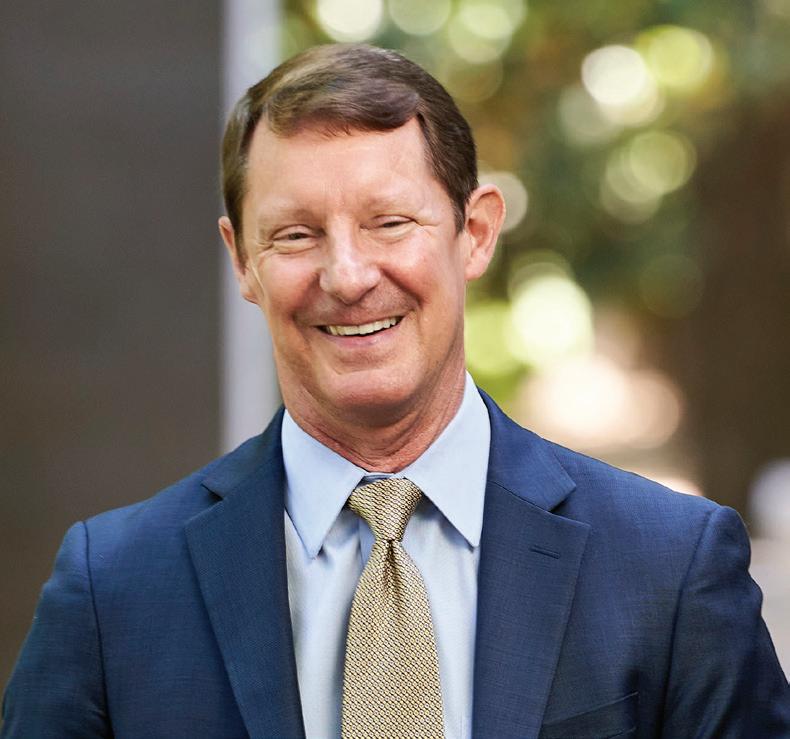

THE CLINIC DIRECTOR:


THE CLINIC DIRECTOR:
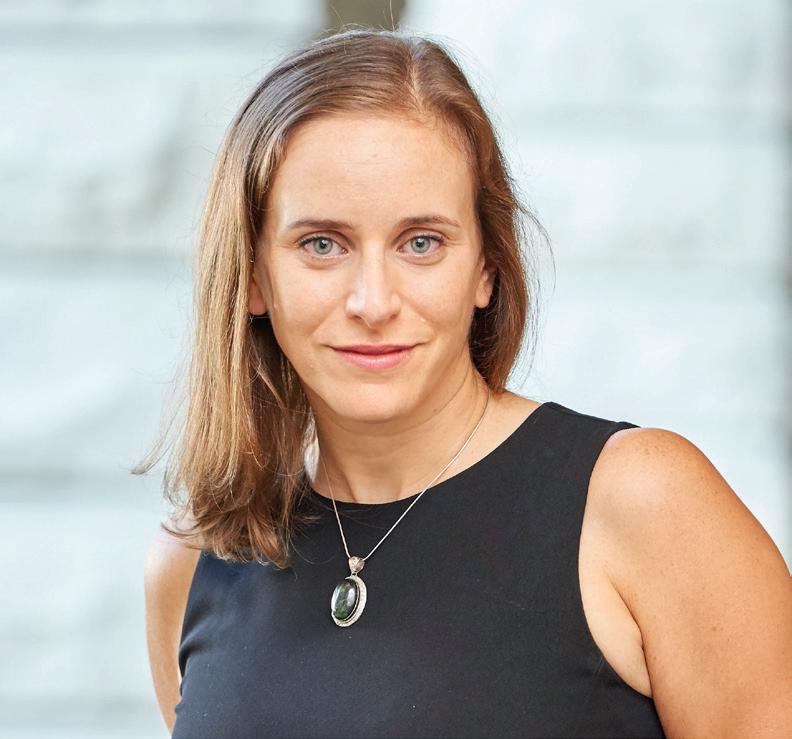



The Turner Family Community Enterprise Clinic allows students to represent small businesses and nonprofit organizations in a range of transactional matters, including entity formation, governance, tax, contracts, employment, intellectual property, and risk management. Under faculty supervision, students conduct client interviews, perform fact investigations and legal research, draft client-ready transactional documents and advisory memoranda, and counsel clients on their recommendations. Students also organize a community education project to facilitate entrepreneurship and inclusive economic development in the region.
Students enrolled in the Youth Opportunity Clinic represent young people (aged 16-25) who are at risk for criminal legal involvement by providing civil legal representation that will help them access opportunities in the areas of education, secure housing, and employment. Clinic students learn about the school-to-prison pipeline and the collateral effects of the criminalization of youth through representing clients in proceedings such as school disciplinary hearings, housing evictions, and record sealing and expungement. Under faculty supervision, students are responsible for client interviewing, counseling, and representation in administrative proceedings and court, and through written and oral advocacy. Students also develop community education materials and engage in efforts to promote policies that support young people’s efforts to achieve in school, access and maintain secure housing, and become self-sufficient.
“The reentry work I did in the Youth Opportunity Clinic offered me a glimpse into a subset of publicinterest work I had not known much about but that I now see as a viable way to use my law degree to support my community.”
Law Clerk for The Honorable Travis McDonough, Chief Judge, United States District Court, Eastern District of Tennessee
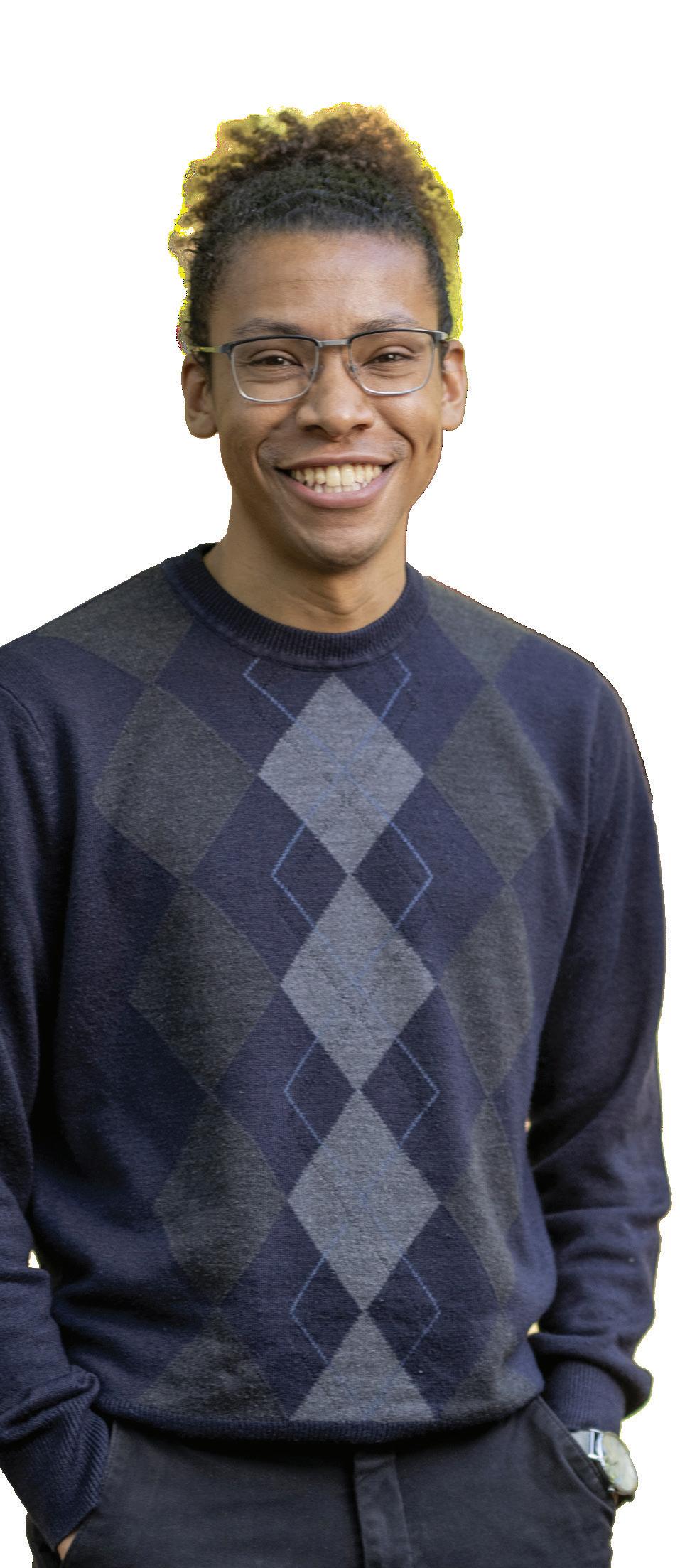
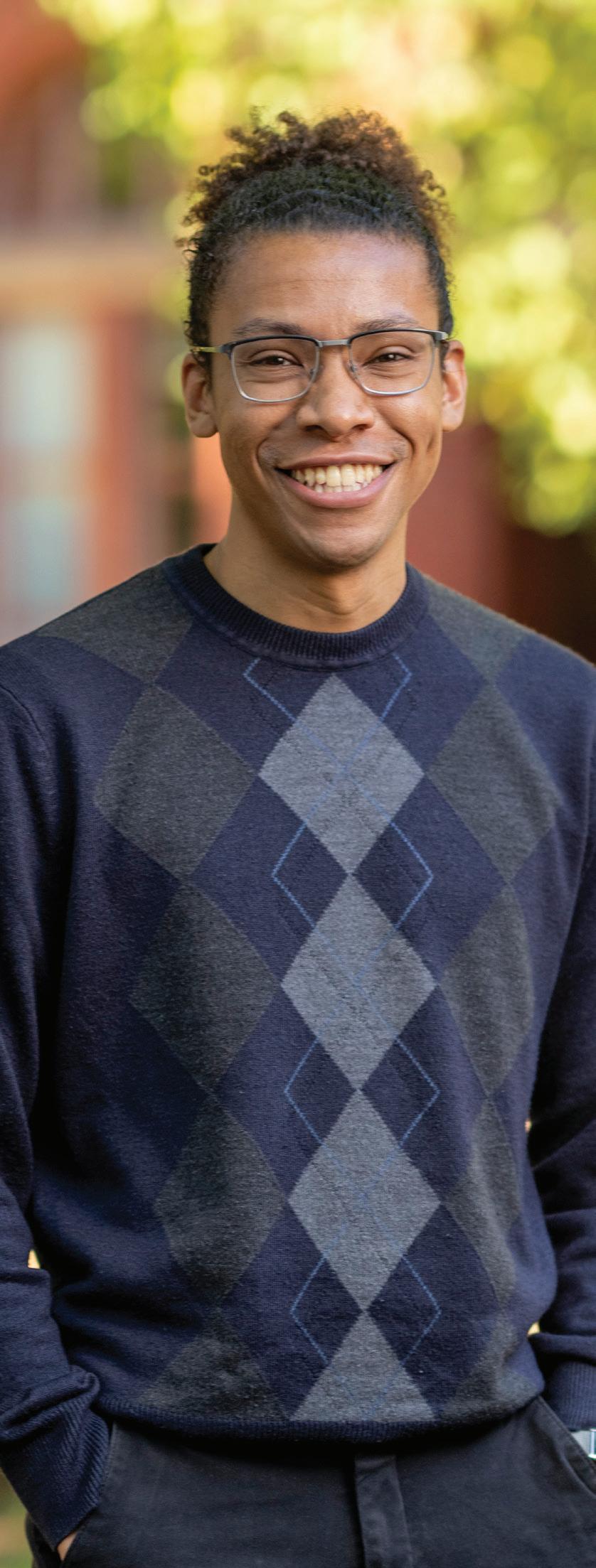
“Vanderbilt has exceeded my expectations. I knew law school here would be rigorous, but I did not imagine I’d have the flexibility to explore indepth social justice legal issues to the extent I have through my coursework and extracurriculars.”
Heirs Property Law Fellow, Wake Forest Environmental Law & Policy Clinic
Best Classroom Experience, Princeton Review (2024). NO.7
Vanderbilt Law students have ample opportunities to gain substantial experience working alongside legal professionals anywhere in the world. Externships and summer stipends allow students to choose and design placements tailored to their individual interests, typically by working with federal or state judges, prosecutors, defenders, or agencies; state attorneys general or legislative offices; corporate legal departments; or legal aid or other nonprofit or nongovernmental organizations.
Students may engage in externships throughout the U.S. and overseas in self-designed placements or through the International Legal Studies Program and the Energy, Environment and Land Use Program, both of which sponsor semester externships in Washington, D.C., and abroad.
Students may also engage in semester-long or summer externships in Nashville in self-designed placements or at sites that include the chambers of judges and magistrates of the Middle District of Tennessee’s federal district and bankruptcy courts; the Tennessee Supreme Court and the Courts of Appeals and of Criminal Appeals for Tennessee’s Middle Section; in the U.S. Attorney’s Office, the Tennessee Attorney General’s Office, the Federal Public Defender’s Office, and the Metropolitan Nashville Public Defender’s Office; with the Legal Aid Society of Middle Tennessee and the Cumberlands; and with other courts, law offices, and advocacy organizations.
Number of students who interned with Government and Nonprofit Legal Employers during summer 2024, in 14 states, Washington, D.C., and for legal nonprofits in London, U.K., The Hague, Netherlands, and Valletta, Malta.
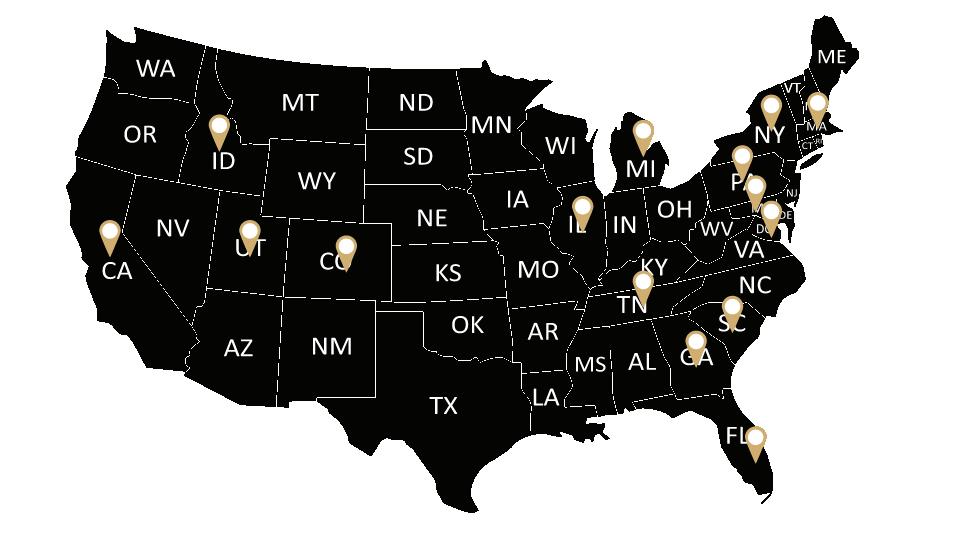
Students who serve in unpaid legal positions with government or nonprofit organizations receive financial support to help defray their living expenses.
These summer support stipends are funded by Vanderbilt Law School, the Vanderbilt Legal Aid Society, and various endowment funds. Students seeking to launch social justice careers can receive summer stipends from the George Barrett Social Justice Scholar Program to help defray their living expenses while they work pro bono for public interest organizations.

“The generous support provided by the Garrison Social Justice Scholarship will allow me to move one step closer to achieving my professional goal of leading a career in advocacy and litigation.”
SMITH ‘26
Garrison Social Justice Scholar, who spent summer 2024 participating in the ACLU of Kentucky’s Southern Legal Internship Program

EXTERNSHIPS & SUMMER STIPENDS
Explore our experiential learning opportunities.
Vanderbilt Law School publications offer students the opportunity to contribute to important legal discourse, hone their research and writing skills, and connect to the global legal community.
Published 6 times a year, the Vanderbilt Law Review ranked 15th in the 2024 W&L Law Journal Rankings.
En Banc is the online companion journal to the Vanderbilt Law Review, designed to advance scholarly discussion. It publishes various forms of scholarship, including the following:
• Roundtables to host debates among legal academics and practitioners, usually on notable cases pending before the U.S. Supreme Court or topical issues;
• Responses to articles originally published either in the Vanderbilt Law Review or with Vanderbilt Law Review En Banc;
• Essays written by scholars, practitioners, judges, or students on contemporary legal issues;
• Delaware Corporate Law Bulletins written by professors and students, commenting on recent corporate case law developments in Delaware;
• Notes and Comments written by Law Review members on various legal issues; and
• Book Reviews written by professors on recent pieces of scholarship, with a focus on reviewing books authored by a Vanderbilt Law faculty member.
An annual compendium of the best legal and policy scholarship published the previous year produced by Vanderbilt Law students and the Environmental Law Institute staff. ELPAR affords students the opportunity to identify the year’s best scholarship in environmental law, publish a student-edited volume, and participate in a symposium focusing on policy recommendations.
ELPAR is designed to bring ideas from the academy to policymakers and practitioners, as well as recognize and incentivize scholars to write articles that include creative and feasible law and policy proposals. At the same time, the review seeks to provide a first-rate educational experience to law students interested in environmental law and policy.
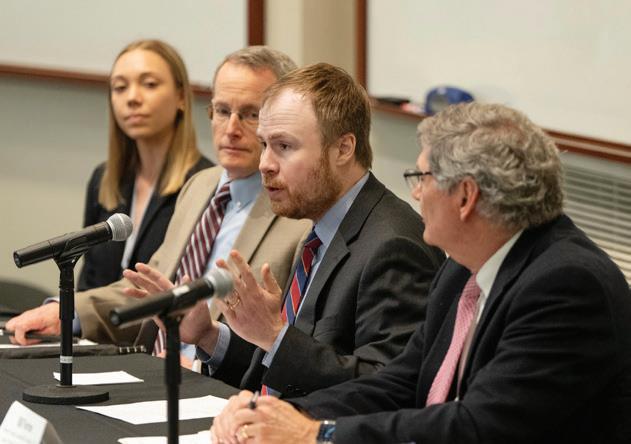
The Vanderbilt Social Justice Reporter strives to publish scholarship that will challenge the “neutral” tenets of the law by elevating traditionally minimized or excluded stories and empowering readers from all backgrounds to engage in the pursuit of social justice and civil rights.

Learn more about our student-led and peer-reviewed publications.
Vanderbilt Journal of Transnational Law
Established in 1967, it is one of the world’s most prominent and widely cited legal journals devoted to current and emerging issues of comparative and international law.
The Journal, a student-edited publication, annually publishes 5 issues containing articles written by prominent international law scholars and legal practitioners. It is an integral part of the intellectual life at Vanderbilt Law School. The Journal hosts a biennial symposium on current issues in international and comparative law. Recent symposia have drawn participants from around the world to discuss topics such as foreign state immunity, international law and the arctic, and transborder trusts and estates.
International Law Journals, W&L Law Journal Rankings (2023).

The Vanderbilt Journal of Entertainment & Technology Law (JETLaw)
JETLaw publishes 4 editions each year and hosts an annual symposium, which in 2024 explored music law, including equity in music, artists’ rights, and organized labor. Ranked 11th among 58 journals focusing on Science, Technology and Computing Law in the 2023 W&L Law Journal Rankings
Arts, Entertainment and Sports Law Journals, W&L Law Journal Rankings (2023).

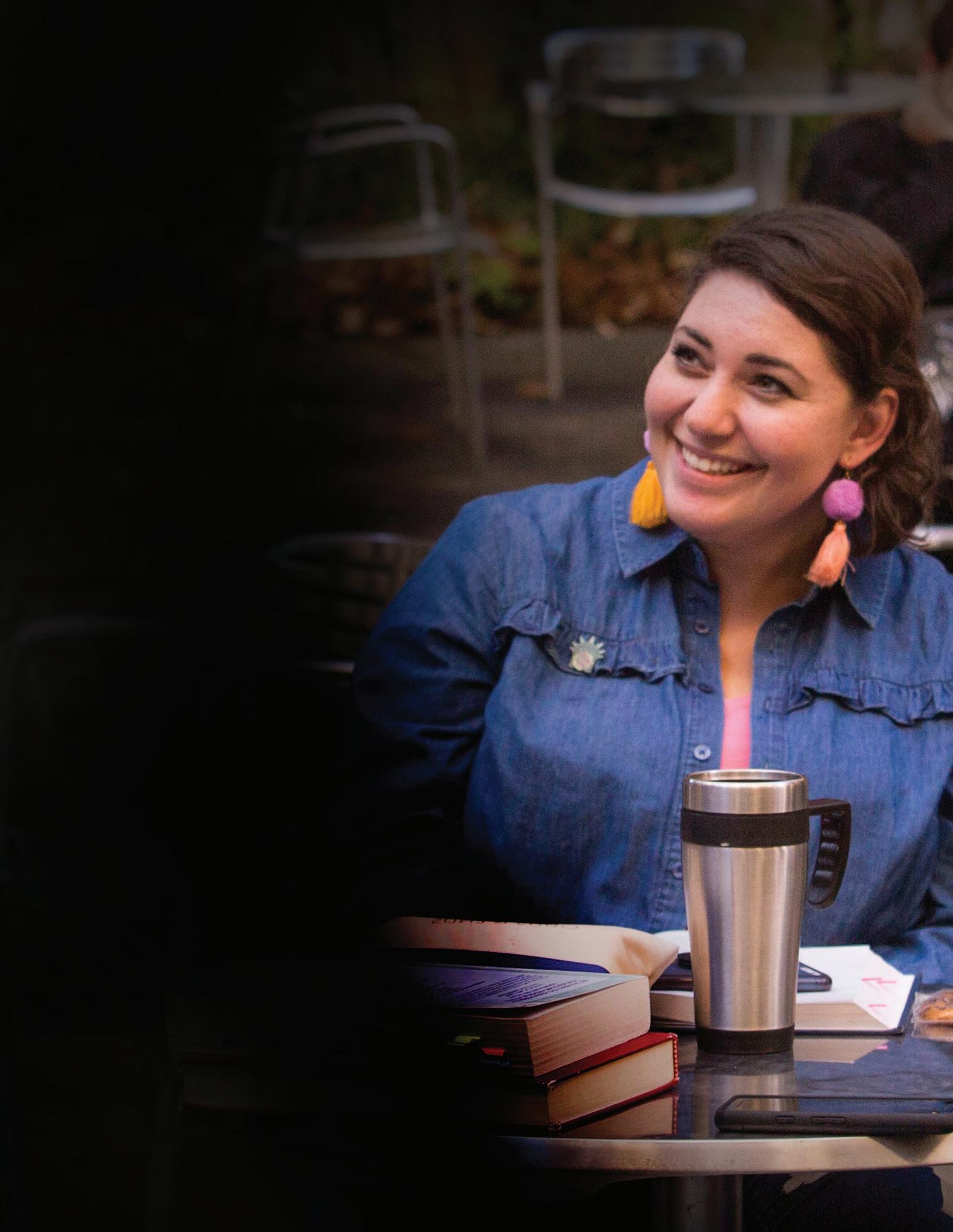
Law school can be intense, with rigorous classwork, career-searching, and other demands on your time. Resulting pressures can unintentionally foster unhealthy cultures and behaviors that lead to a less-than-ideal experience. These three years should be a transformative time in your life that you’ll recall fondly. At Vanderbilt, we will ensure your time is spent both productively and happily as you invest in your future.
Practically speaking, our small class sizes offer substantial benefits. A smaller community makes it easier to meet fellow students and faculty. Upperlevel classes, experiential learning opportunities, and administrative services are readily accessible.
Students seek careers across the country in a variety of firms and organizations, naturally reducing the level of competitiveness amongst students relative to a school where the majority of students might be trying to place in large firms within a single city or state.
We provide the support that students need to meet the challenges of a rigorous, top-tier legal education. Classes are held Monday - Thursday, allowing you extra time to catchup with the demands of school and life.
Class sizes and career services contribute to a positive student experience, but our culture ultimately defines it. We intentionally recruit students who we expect will invest in, and benefit from, our community. A spirit of collaboration and collegiality extends through the faculty, who co-author scholarship and work individually with students to help them meet their academic and professional goals. Through our Office of Student Life, social events, speaker series, and student organizations, we foster an environment where you will make connections and friendships that last a lifetime.
That collaborative spirit also allows us to encourage healthy debate and discourse, providing students and faculty with a safe space to express their beliefs and viewpoints in an increasingly polarized world.
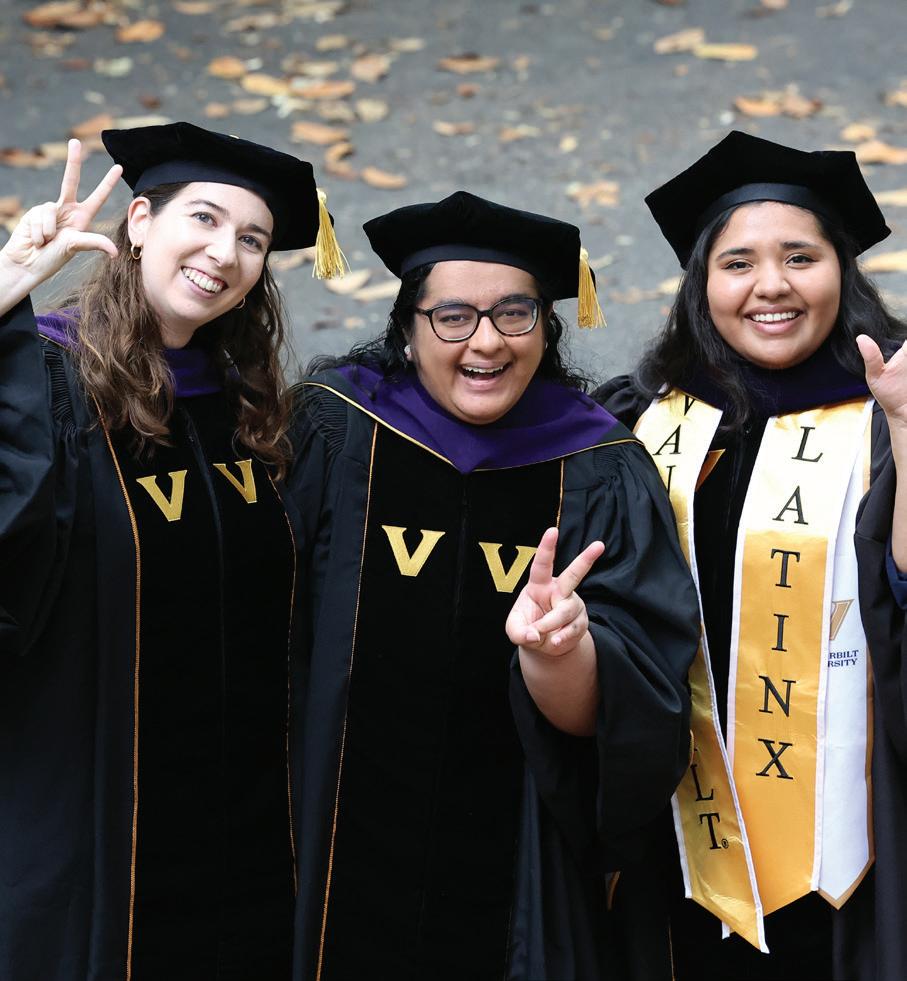

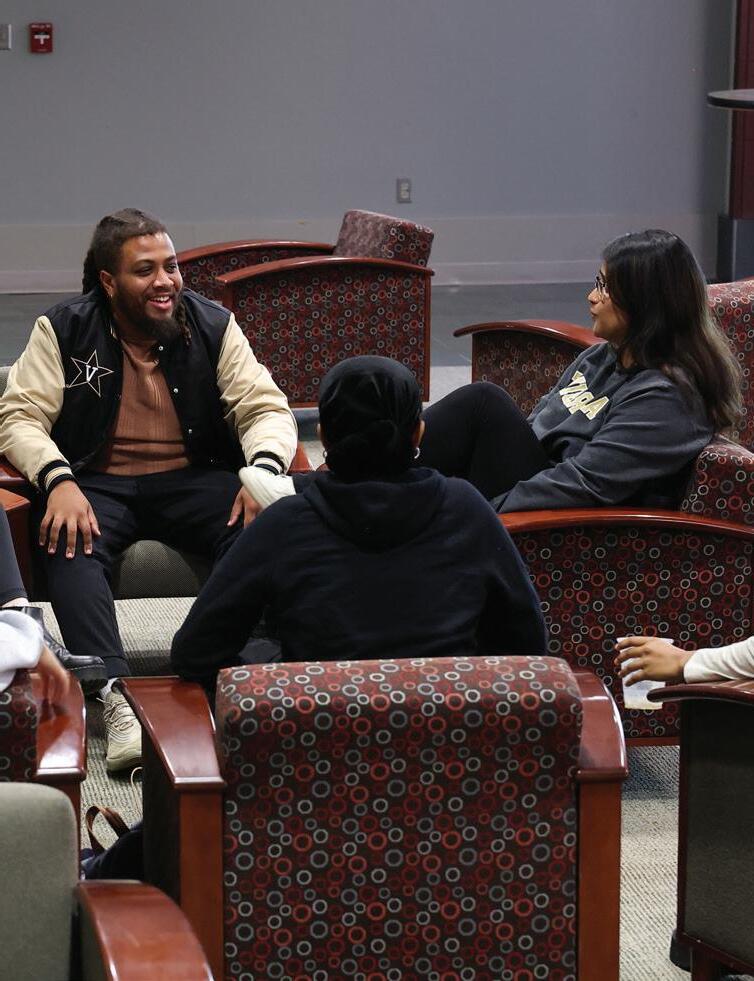
“Vanderbilt’s community was the single most important aspect of my law school experience, and I also found an intellectual haven here. I’ll have no problem sending my kids to Vanderbilt— that’s how much I’ve enjoyed my time here.”
Associate, Simpson & Thacher

Find out more about what makes the culture at Vanderbilt Law so unique.
The Office of Student Life provides services and resources that reflect the diversity of needs and issues that law students encounter during their education.
The Office helps students take advantage of myriad opportunities to build their leadership skills, launch new initiatives and organizations, and forge their own paths. It also offers nonclinical general and situational counseling and referrals to campus resources.
The Office provides support to the school’s 50+ Student Organizations, assisting with everything from event planning to financial management.
The Office facilitates registration and exams, in addition to providing bar exam and licensure support. The office also provides programing designed to enrich each student’s intellectual and professional development and acts as a liaison between students, the faculty, and law school administration.
The Academic Success team within the Office of Student Life help students develop the skills and processes necessary to excel in the rigorous endeavors of law school and law practice, through workshops, small group series, and individual meetings. Students serving as Academic Success Fellows support other students, gaining leadership experience while strengthening the culture of collaboration and civil engagement at school.
The Office advises the Equity, Diversity, and Inclusion Council and works in close partnership with the Associate Dean for Diversity, Equity, and Community. It works collaboratively with students to build a community that encourages respect, tolerance, and appreciation of individual differences.
Incoming students are assigned to an upperclass mentor through the Co-Counsel Program. These mentors are there to smooth the transition into law school and ensure students are socially connected, informed, and prepared to be successful during their first year of law school. Each incoming student is also part of a larger circuit that holds social gatherings.
ONEelevate is a highly selective leadership training program for Vanderbilt 1Ls. The program aims to provide a collaborative learning experience in law school and beyond, promote a culture of diverse leadership, remove barriers to success, and teach skills necessary to become active leaders in the law school and legal profession. Selected students are each matched with 2 mentors: a current 2L or 3L student and a prominent local attorney or judge.


Read more about student life resources on campus.
Vanderbilt Law students are active, public-minded and come from a variety of backgrounds – all qualities reflected by a wide variety of thriving student organizations at the law school. Even with many demands on their time, students find it worthwhile to join one or more organizations for professional advancement, personal enhancement, altruism, and networking – or simply a welcome reprieve from the demands of law study.
Academic/Practice Areas
• Cork & Tap Society
• Criminal Law Association
• Energy and Environmental Law Society
• Entertainment & Sports Law Society
• Health Law Society
• Immigration Law Society
• Intellectual Property Association
• International Law Society
• Investment and Securities Club
• Labor & Employment Law Society
• Law & Business Society
• Space Law Society
Administrative/Governance
• Vanderbilt Bar Association
• Ambassadors
• Equity, Diversity, and Inclusion Council
• Honor Council
• Co-Counsel at Vanderbilt Law School
Advocacy/Political
• American Constitution Society
• Federalist Society
• If/When/How: Lawyering for Reproductive Justice
• Law Students for Social Justice
• Law Students for Veterans Affairs
• Legal Aid Society and Public Interest Stipend Fund
• People’s Parity Project
• Plaintiffs’ Advocates & Litigation Society
• Street Law
• Voting Rights & Advocacy Society
• Vanderbilt Law Students for Life
• Mock Trial Board
• Moot Court Board
Identity
• Asian-Pacific American Law Student Association
• Black Law Students Association
• Jewish Law Students Association
• La Alianza
• Middle Eastern & North African Law Student Association
• Opening Statement: Vanderbilt First Generation Lawyers
• OutLaw
• South Asian Law Students Association
• Women Law Students Association
• Older Wiser Law Students (OWLS)
Publications
• Environmental Law & Policy Annual Review
• Journal of Entertainment & Technology Law
• Journal of Transnational Law
• Social Justice Reporter
• Vanderbilt Law Review
Special Interest
• Film Club
• Golf Club
• J.O.G. (Jurists on the Go)
• Knitigation
• Headnotes
• Soccer Club
• Phi Delta Phi
• Public Interest Auction
• Transfer Students Association
“I am grateful to be part of a community that’s friendly and values collegiality. Law school is inherently hard work and time consuming, but you should enjoy the people you’re around and feel supported in your classroom—and that’s what’s here.”
SAMANTHA SMITH ‘22 Associate, Arnold & Porter Kaye Scholer
THEY STILL CALL IT “MUSIC
CITY,”
but Nashville has earned a few other distinctions. It’s perennially on the list of America’s friendliest cities. It has been named the nation’s No. 1 smartest place to live.
With more than 100 health care companies, it has been called the industry’s “Silicon Valley.” It’s an insurance capital. A publishing capital. A financial capital. A tourist destination. And a dynamic state capital.
Meanwhile, it’s a vibrant, cosmopolitan place that blends a growing international flavor (more than 80 languages are spoken here) with traditional Southern hospitality and the laid-back feel of the West Coast.
All of that helps make Nashville a great place to gain your legal education.
In Nashville, you always have a banquet of tempting options. Take your pick of buzzing

nightspots and incredible live music, from downtown honky-tonks to the famous Bluebird Café, a world-class symphony, bluegrass legends at The Station Inn, club shows of every persuasion or whoever’s playing tonight at the historic Ryman Auditorium.
Beyond Nashville’s famous hot chicken, there are so many must-try restaurants—representing a broad array of genres, innovations and corners of the world—that The Wall Street Journal calls Nashville “a culinary powerhouse.”
Savor 4 distinct seasons in Nashville’s beautiful parks and on hundreds of miles of trails and greenways. Take in an NFL game with the Tennessee Titans or an NHL game with the Nashville Predators. Or major-league soccer. Or minor-league baseball. Or big-time college sports just a stroll across the campus.
2022 Nashville MSA Population.

The South’s Best Cities - Southern Living (March 2024).
The Best Cities in the US - 2023 Readers’ Choice Awards (October 2023).
2.04M 3 8 1 NO. NO. NO.
Best Labor Market - Wall Street Journal (2022).

Dive into all that Nashville has to offer our students.
ONE OF THE MOST SUCCESSFUL CAREER SERVICES PROGRAMS
among the nation’s leading law schools, providing comprehensive resources to help students explore top-tier career options and guide graduates to employment opportunities across the United States and around the world.
Led by Assistant Dean Elizabeth Workman, our experienced and dedicated counselors work oneon-one with students starting in the first year.
Through our comprehensive program of coaching and counseling, you will learn how to approach your job search strategically, identify, and secure summer jobs and internships that will enhance your resumé, and make good long-term career decisions based on your career goals.
Even more critically, students gain networking skills and alumni connections through

academic program activities, pro bono legal works, externships, and meetings with legal professionals who to visit the law school each year to teach short courses or give talks about their areas of practice.
In addition to personalized career counseling, Vanderbilt hosts Virtual and In-Person Interviews and participates in job fairs with legal employers in major legal markets.
Each year, employment outcomes for new Vanderbilt J.D. graduates consistently stand among the best in the nation for positions requiring bar passage, including coveted federal judicial clerkships and employment in the nation’s largest law firms and in government and public interest positions.
Vanderbilt Law graduates launch careers in every employment sector and consistently secure top-tier legal employment across the nation and around the world.
200 Total graduates
99.5% of 2023 graduates were employed 10 months after graduation.
84% of 2023 graduates took employment outside Tennessee across 29 states, Washington, D.C., and abroad (85% of 2019–23 graduates took employment outside Tennessee across 39 states, D.C., and abroad).
$215,000 J.D. Class of 2023 private sector median salary; average salary $190,928 (based on 139 of 150 graduates reporting salaries). Public sector median salary $69,107; average salary $68,914 (based on 47 of 49 graduates reporting salaries).

Read more about our unique career services offerings and outcomes.

10
Ranking of the Top 50 law schools based on employment outcomes, cost, and student debt, Above the Law (2024)
“Go-To” Law Schools, based on Percentage of Graduates to Nation’s 100 Largest Firms, National Law Journal / Law.com (2024).
Percentage of 2023 graduates who took “elite” full-time, long-term, bar-passage required jobs, either federal clerkships or associates at firms of 100 or more attorneys (69.4%, based on ABA data).
8 11 9 NO. NO. NO. NO.
Best for Federal Clerkships, Princeton Review (2024).
DOMESTIC GRADUATES AT A GLANCE
Bahrain (1) China (2) China (3) Switzerland (1) Shanghai (1) Nepal (1) U.S. Army Jag (3) Belgium(1) U.S. Army Jag (4) U.S. Army Jag (2) U.S. Army Jag (2) London, U.K. (1) U.S. Marine Corps JAG (1) U.S. Army Jag (3) U.S. Airforce (1)
Employment Status
% All Vanderbilt % All ABA Full Time 23 Graduates Graduates Long Term (200) (35,213)
Employed - Bar Passage Required 184 92.0% 80.2%
Employed - JD Advantage 8 4.0% 7.6%
Employed - Professional Position 1 0.5% 2.1%
Employed - Other Position
Employed - Law School / University Funded 6 3.0% 1.1%
Employed - Undeterminable 0 0.0% 0.1%
Enrolled in Graduate Studies 0 0.0% 1.0%
Employed - Start Date Deferred
0 0.0% 0.6%
Unemployed - Not Seeking 0 0.0% 0.8%
Unemployed - Seeking 1 0.5% 5.0%
Employment Status Unknown
Employment Type
Clerkships - Tribal
Clerkships - International
Class of 2023 Salaries
ALABAMA (1)
Birmingham Bradley
CALIFORNIA (8)
Lake Forest Freedom Forever
Los Angeles
Seyfarth Shaw
Riverside Riverside County District Attorney
San Francisco
Kirkland & Ellis LLP
O’Melveny & Myers LLP
Ropes & Gray LLP (3)
COLORADO (7)
Castle Rock
Office of the District Attorney, 18th Judicial District
Denver
Dorsey & Whitney LLP
Husch Blackwell
Office of the Attorney General, Colorado Department of Law (2) Office of the Colorado State Public Defender Polsinelli
WASHINGTON, D.C. (22)
Arnold & Porter Kaye Scholer LLP Cooley LLP
Dentons US LLP
Environmental Protection Agency, Office of Site Remediation Enforcement Foley & Lardner LLP
Freshfields Bruckhaus Deringer LLP
Gibson, Dunn & Crutcher LLP
Grameen Foundation
Hogan Lovells US LLP
Latham & Watkins LLP
Sheppard Mullin Richter & Hampton (2)
Sidley Austin LLP (3)
U.S. Coast Guard Headquarters
U.S. Court of Appeals, District of Columbia Circuit
U.S. Department of Justice, Access to Justice Initiative
U.S. House Committee on Oversight and Accountability
Venable LLP
D.C. Court of Appeals
Farmworker Justice
DELAWARE (2)
Wilmington Bayard, P.A.
Womble Bond Dickinson
FLORIDA (5)
Coral Gables
Goldstein & Company
Fort Lauderdale
Gunster
Jacksonville Fidelity National Title Group
Orlando
King, Blackwell, Zehnder & Wermuth
U.S. District Court, Middle District of Florida
GEORGIA (7)
Atlanta
Arnall Golden Gregory LLP
Emory University School of Law
Freeman Mathis & Gary LLP
King & Spalding LLP
Morris, Manning & Martin, LLP
Troutman Pepper Hamilton Sanders LLP
Mableton Your Brand’s Law Firm
ILLINOIS (9)
Chicago
Bryan Cave Leighton Paisner LLP
Greenberg Traurig, LLP
King & Spalding LLP
Kirkland & Ellis LLP (2)
Locke Lord LLP
Marshall, Gerstein & Borun LLP
Nicolaides Fink Thorpe Michaelides Sullivan LLP
Paul Hastings LLP
INDIANA (1)
Indianapolis Woodford Sathappan McGee
KENTUCKY (3)
Lexington Wyatt, Tarrant & Combs, LLP
Louisville
Strause Law Group, LLC
U.S. District Court, Western District of Kentucky
LOUISIANA (2)
New Orleans
Mouledoux, Bland, Legrand & Brackett
U.S. District Court, Eastern District of Louisiana
MASSACHUSETTS (5)
Boston
Goodwin Procter LLP
Jones Day
Ropes & Gray LLP
U.S. District Court, District of Massachusetts
Worcester
Community Legal Aid
MARYLAND (1)
Fort Meade
U.S. Army JAG Corps
MICHIGAN (1)
Detroit
Honigman Miller Schwartz and Cohn LLP
MINNESOTA (2)
Minneapolis
Dorsey & Whitney LLP
U.S. District Court, District of Minnesota
MISSISSIPPI (2)
Greeneville
U.S. District Court, Northern District of Mississippi
Madison
City of Madison
MISSOURI (1)
St. Louis
Bryan Cave Leighton Paisner LLP
NEVADA (1)
Reno
Richard Harris Law Firm
NEW JERSEY (2)
Morristown
Fox Rothschild LLP
Trenton
New Jersey Judiciary
NEW MEXICO (1)
Albuquerque
U.S. District Court, District of New Mexico
NEW YORK (42)
Brooklyn
Brooklyn Defender Services
New York
A Better Balance
ACA Global
Alston & Bird LLP (2)
Baker Botts L.L.P.
Darger Errante Yavitz & Blau LLP
Dechert LLP
Dentons US LLP
Fenwick & West LLP
Freshfields Bruckhaus Deringer LLP
Gibson, Dunn & Crutcher LLP (2)
Goodwin Procter LLP (2)
Herbert Smith Freehills LLP
Hogan Lovells US LLP (2)
Immigrant Justice Corps
Katten Muchin Rosenman LLP
Kennedys Law
King & Spalding LLP
Kirkland & Ellis LLP (3)
Latham & Watkins LLP (2)
Milbank LLP (2)
Norton Rose Fulbright US LLP
O’Melveny & Myers LLP
Paul Hastings LLP
Paul, Weiss, Rifkind, Wharton & Garrison LLP
Ropes & Gray LLP
Simpson Thacher & Bartlett
Skadden, Arps, Slate, Meagher & Flom LLP (2)
The Legal Aid Society of NYC
U.S. Court of International Trade Weil, Gotshal & Manges LLP
Willkie Farr & Gallagher LLP (2)
NORTH CAROLINA (4)
Charlotte K&L Gates LLP
Moore & Van Allen, PLLC (2)
Raleigh North Carolina Court of Appeals
OHIO (1)
Cleveland Jones Day
OKLAHOMA (1)
Tulsa She Still Rises
OREGON (1)
Portland Stoel Rives LLP
PENNSYLVANIA (3)
Philadelphia Ballard Spahr LLP
Philadelphia District Attorney’s Office
Pittsburgh Jones Day
SOUTH CAROLINA (1)
Charleston Southern Environmental Law Center
TENNESSEE (33)
Brentwood
Farrar Bates Berexa Meridian Law, PLLC
Chattanooga Baker, Donelson, Bearman, Caldwell & Berkowitz
U.S. District Court, Eastern District of Tennessee
Franklin
Buerger, Moseley & Carson, PLC
Franktown Open Hearts
Outkick The Coverage, LLC
Knoxville
U.S. District Court, Eastern District of Tennessee
Memphis
U.S. District Court, Western District of Tennessee
Nashville
Baker, Donelson, Bearman, Caldwell & Berkowitz
Bass, Berry & Sims, PLC (4)
Burr & Forman, LLP
Crow Estate Planning & Probate
Holland & Knight LLP(2)
K&L Gates LLP (3)
Maynard Nexsen PC
Metropolitan Government of Nashville and Davidson County
Nelson Mullins Riley & Scarborough, L.L.P. (2)
Office of the District Attorney General –20th Judicial District
Tennessee Administrative Office of the Courts
Tennessee Innocence Project
Tennessee Justice Center
Vanderbilt Law School
Vanderbilt Law School, AI Law Lab
Vanderbilt University Office of the General Counsel (2)

TEXAS (28)
Austin
Gjerset & Lorenz, LLP
Hembree Bell Law Firm
Kirkland & Ellis LLP (2)
Travis County Public Defender’s Office
Dallas
Akin, Gump, Strauss, Hauer & Feld, L.L.P.(2)
Alston & Bird LLP
Haynes and Boone, LLP(2)
Husch Blackwell
Katten Munchin Rosenmann LLP
Kirkland & Ellis LLP (2)
Sidley Austin LLP (3)
University of Texas Southwestern Medical Center, Peter O’Donnell, Jr. School of Public Health
Weil, Gotshal & Manges LLP
Winston & Strawn LLP (4)
Houston
Winston & Strawn LLP. (3)
Irving McKesson Corporation
Killeen
U.S. Army JAG
WISCONSIN (1)
Milwaukee
Foley & Lardner LLP
INTERNATIONAL (3)
Shanghai Commerce & Finance Law Offices
For the most up to date information, scan here.
Vanderbilt provides extensive resources to prepare for and launch a public interest law career in government service, criminal defense, nonprofit advocacy, legal aid, NGOs, or your own brand of public interest entrepreneurship. The Public Interest Office coordinates pro bono service opportunities and facilitates law careers for students and recent graduates seeking to work in the public interest. The George Barrett Social Justice Program offers hands-on training and mentoring specifically designed to prepare graduates for work in the public interest.
The Assistant Dean for Public Interest works one-on-one with students seeking public interest careers. Vanderbilt Law’s annual Government and Public Interest Day allows students to network with government and nonprofit employers. Students may also attend the annual Equal Justice Works Conference and Career Fair with support from Vanderbilt.
Post-graduation fellowships are time-limited employment opportunities that provide pathways into the public interest legal sector for new law graduates. Fellowships accelerate new lawyers’ careers by providing valuable professional experience, access to professional networks, and the distinction of having secured a coveted opportunity to work in the public interest.
The George Barrett Social Justice Fellowship is awarded by competitive application to a graduating student to carry out a one-year public interest project under the supervision and sponsorship of a host organization. Vanderbilt participates in the Gideon’s Promise Law School Partnership, which provides financial support and training to graduates committed to indigent defense careers. A number of Vanderbilt Law graduates have secured.
Vanderbilt’s Public Service Pathways program enables new Vanderbilt Law graduates to gain valuable public-sector work experience by supporting them as they pursue permanent employment in a location of their choice. Graduating students secure volunteer legal internships with government agencies, in judicial chambers, with public defenders’ or prosecutors’ offices, or with nonprofit advocacy organizations, which are funded by stipends after graduation. Some graduates have garnered permanent positions at the organizations they first joined as interns; others have secured full-time legal employment elsewhere. The program currently provides financial assistance for bar preparation and stipend support for up to 6 months.

PUBLIC INTEREST
Browse through the resources available to those seeking public interest careers.
This program pays 100 percent of annual loan repayment obligations for up to 10 years for students who earn less than $70,000.
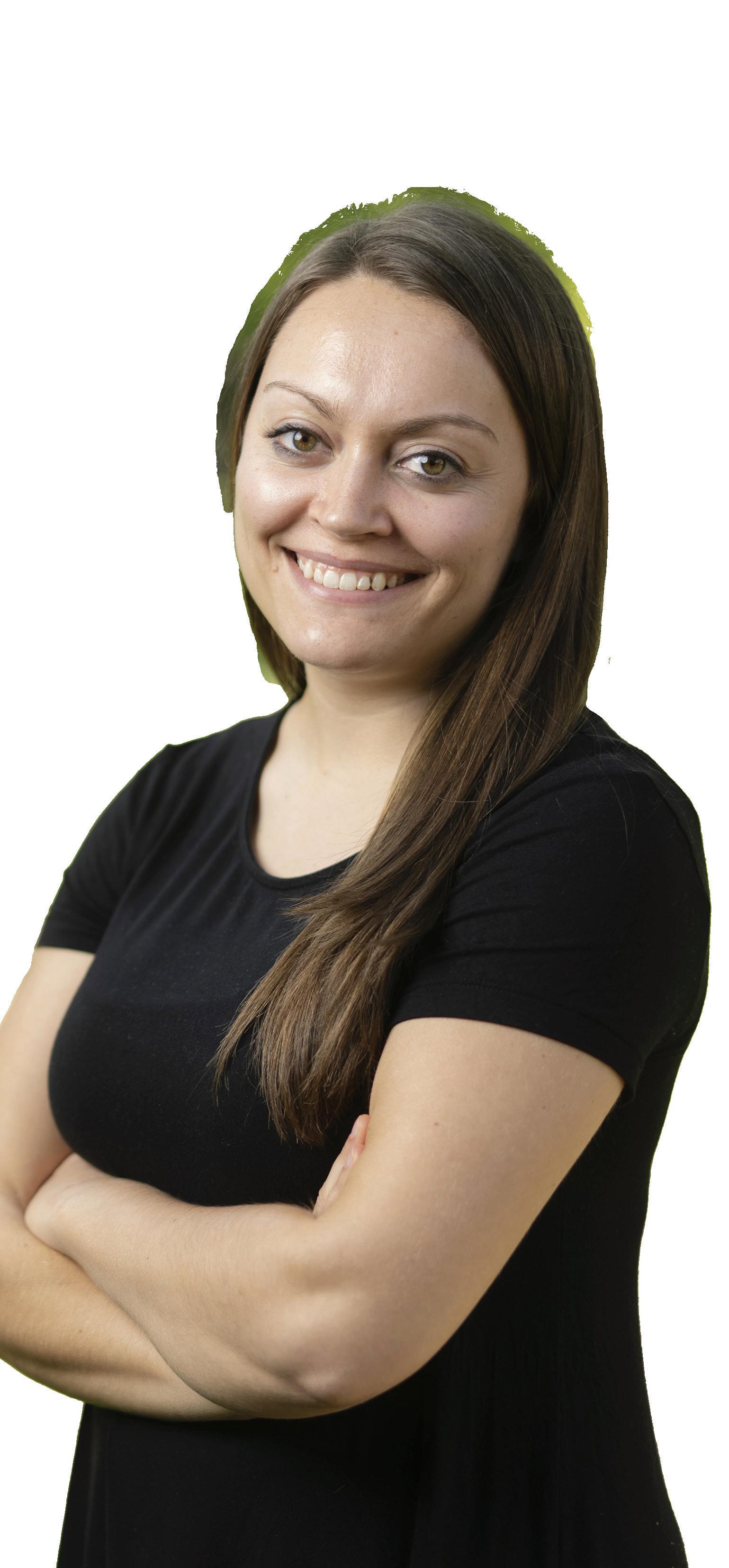
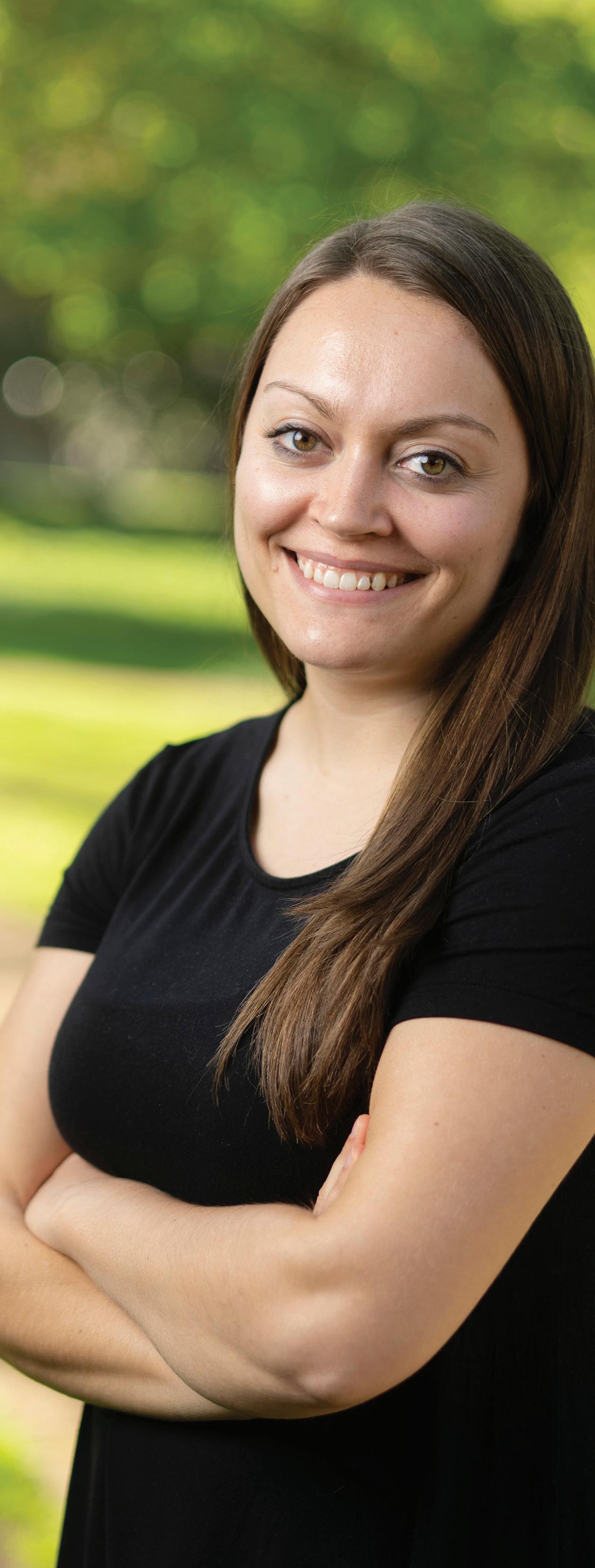
“Vanderbilt checked all of the boxes. I met with the Public Interest Office, and I was impressed with the resources Vanderbilt offered compared to other schools in the South.”
Public Defender, Nashville Defenders
1,026
The total hours Emma volunteered to pro bono service during her time at Vanderbilt Law as part of Vanderbilt Law’s Pro Bono Pledge, through which students commit at least 75 hours of pro bono legal work and community service during their law school careers.
As first employment out of law school, a judicial clerkship typically accelerates a young lawyer’s career.
A judicial clerkship provides an in-depth, contextual understanding of a wide range of legal issues as well as first-hand knowledge of how judges make decisions and how the judicial system works. As a result, experience as a judicial clerk is highly valued by subsequent legal employers in both the private and public sectors. In addition, the judges with whom clerks serve often become lifelong mentors and advocates for their former clerks.
The ABA does not rank schools based on employment outcomes. We have determined Vanderbilt’s rank based on public ABA data available at www.abarequireddisclosures.org/EmploymentOutcomes.aspx.
The career value of clerking makes these positions extremely competitive, particularly in the national employment market for federal clerkships.
Vanderbilt’s faculty takes an active leadership role in the judicial clerkship program, working closely and individually with interested students. Professor Michael Bressman heads the program, providing valuable expertise, guidance, and support throughout law school and the clerkship application process.
In recent years, Vanderbilt Law graduates have clerked for the U.S. Supreme Court, for each of the U.S. Courts of Appeals, and for a variety of U.S. District Courts across the nation.

Find out where our students have accepted clerkships and more.
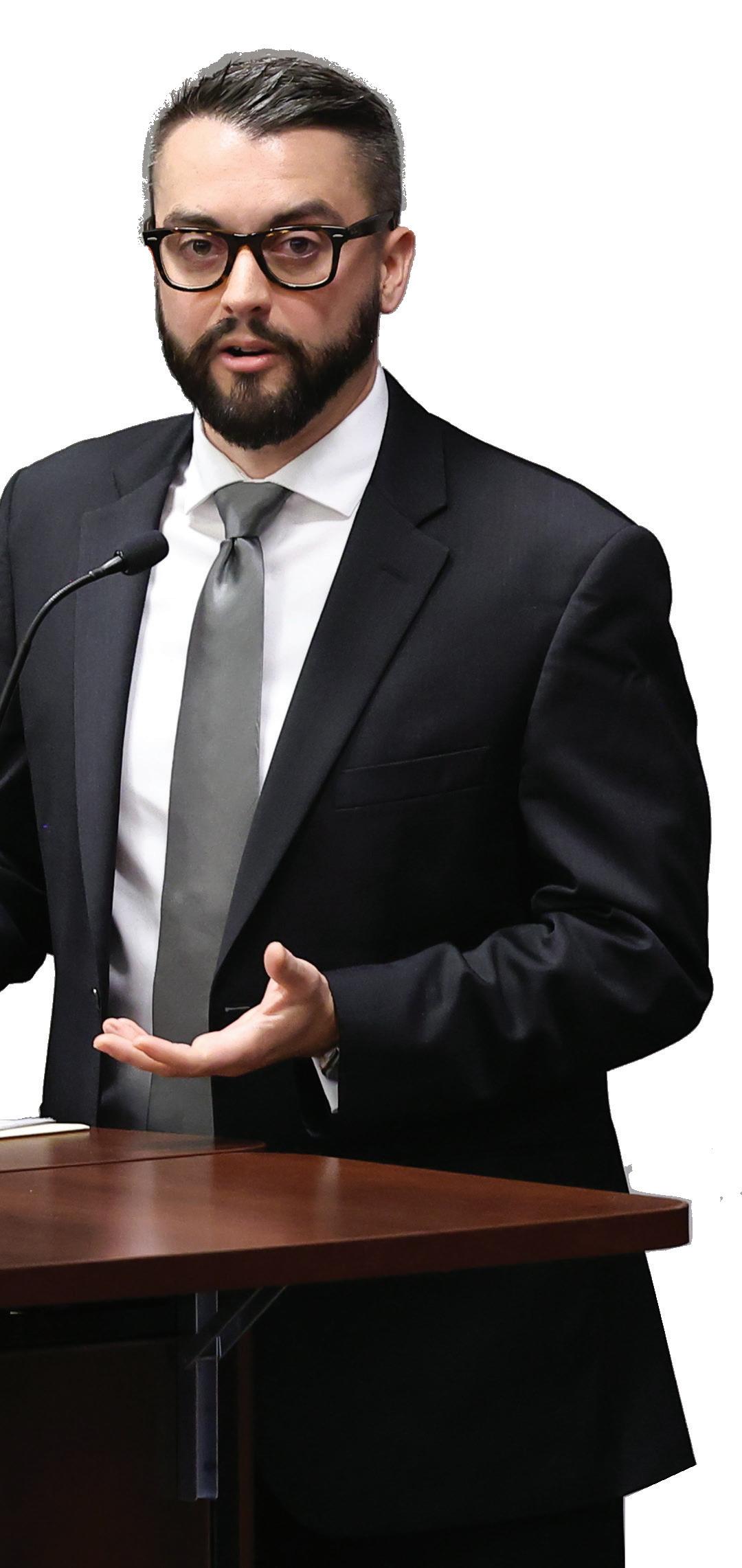
“I
can’t imagine a better transition from student to lawyer than a clerkship. Helping my judge resolve actual cases brought everything I learned in law school to life and gave me invaluable insight into how cases get decided and what it takes to persuade judges— my target audience in the next phase of my career. “
NORRIS ‘14 Partner, Consovoy McCarthy Park 2017–18 Clerk, Justice Clarence Thomas, U.S. Supreme Court
Best for Federal Clerkships, Princeton Review (2024). NO.9
More than 600 Vanderbilt J.D. graduates now live and work in 45 nations outside the U.S., and that number is growing each year. That network is extended by Vanderbilt’s LL.M. graduates, who come here to study the American legal system after earning a law degree in their home country. And in the U.S., approximately 10,000 Vanderbilt Law graduates practice in all 50 states and Washington, D.C.
Alumni are a vital force in the life of the law school. Their contributions have afforded Vanderbilt Law a building that remains one of the most technologically current, attractive and comfortable facilities in the nation. Their financial support also allows the law school to maintain a key advantage: the small size of our student body. In recent years, alumni have endowed the George Barrett Social Justice Program, funded Vanderbilt’s well-regarded Law and Business Program, created new scholarships and post-graduate fellowships, and endowed faculty positions and public interest summer stipends.
But Vanderbilt alumni provide much more than financial support. They recruit our students, help students network with prospective employers, teach courses as members of our adjunct faculty, and take an active role in decisions about the law school’s academic programs, curriculum and governance. They also interview J.D. applicants during the admission process and mentor and hire our students and graduates.

now retired from his partnership at Vinson & Elkins in London, teaches a short course, Energy Industry Mergers and Acquisitions, as a member of Vanderbilt’s adjunct law faculty. Deemer spent his entire career with Vinson & Elkins, opening offices for the firm in Moscow and Beijing. He was featured as “Dealmaker of the Year” by The American Lawyer in 2010 for his role in representing the Chinese state-owned oil giant Sinopec Corp. in its $7.2 billion acquisition of Canada’s Addax Petroleum.
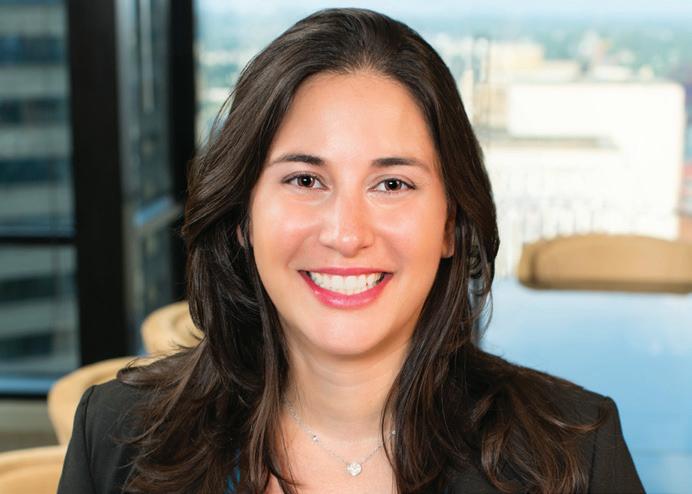
co-chairs the Vanderbilt University Project on Unity and American Democracy. Ali helped establish Hogan Lovell’s office in Dubai before serving as a 2010 White House Fellow, after which she worked with U.S. Homeland Security Secretary Janet Napolitano. She then managed Tennessee’s global relations under Gov. Bill Haslam and practiced law at Bass Berry & Sims before joining Vanderbilt’s faculty as a research fellow in political science and law.
ADOLPHO BIRCH III ‘91, joined the Tennessee Titans as chief legal officer and senior vice president of business affairs in 2020 after working for 24 years in the legal department of the National Football League. During his tenure with the NFL, Birch worked with federal, state and local officials nationwide on key legal issues such as youth concussion laws, the league’s tax status and the FCC’s blackout rule.
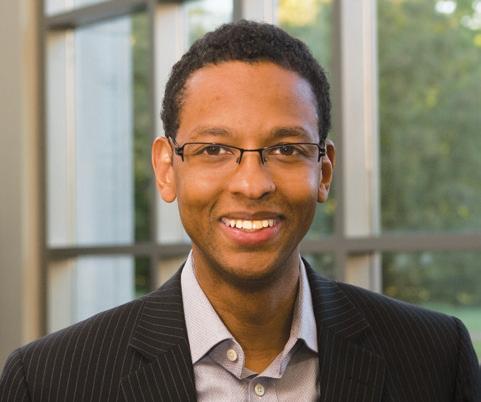
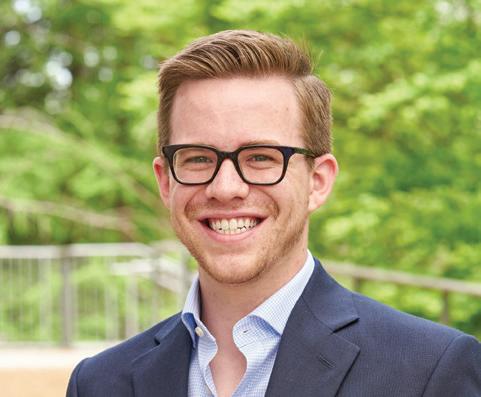
MITCH GLAZIER ‘91, is chairman and CEO of Recording Industry of America, a trade group that represents record labels’ business and legal interests. Glazier started his career on the legal staff of former U.S. Rep. Henry Hyde, R-Ill., during which he helped craft the Digital Millennium Copyright Act.
Number of Vanderbilt Law J.D. alumni who live and work outside the U.S.
Number of Vanderbilt Law graduates who practice across 50 states and Washington, D.C.
Number of states in which Vanderbilt J.D. graduates live and work in the U.S.
We’d like to know you better as a prospective student— and or you to learn more about Vanderbilt Law. That’s why we strongly encourage admission interviews. We can arrange for you to interview with alumni who live and work throughout the U.S. and abroad. Vanderbilt Law admissions officers also interview applicants at scheduled events on university campuses and in major cities coast to coast.
To request an admission interview, submit your Vanderbilt Law application by Nov. 15 with the interview request section completed.
Another great way to discover whether Vanderbilt is the right school is to visit us. You may arrange a visit that may include a tour of our building, observation of a first-year class, and connect with Admissions by contacting our office at 615-322-6452 or admissions@law.vanderbilt.edu.

Meet the admissions team, schedule a visit, or keep up with our events calendar.
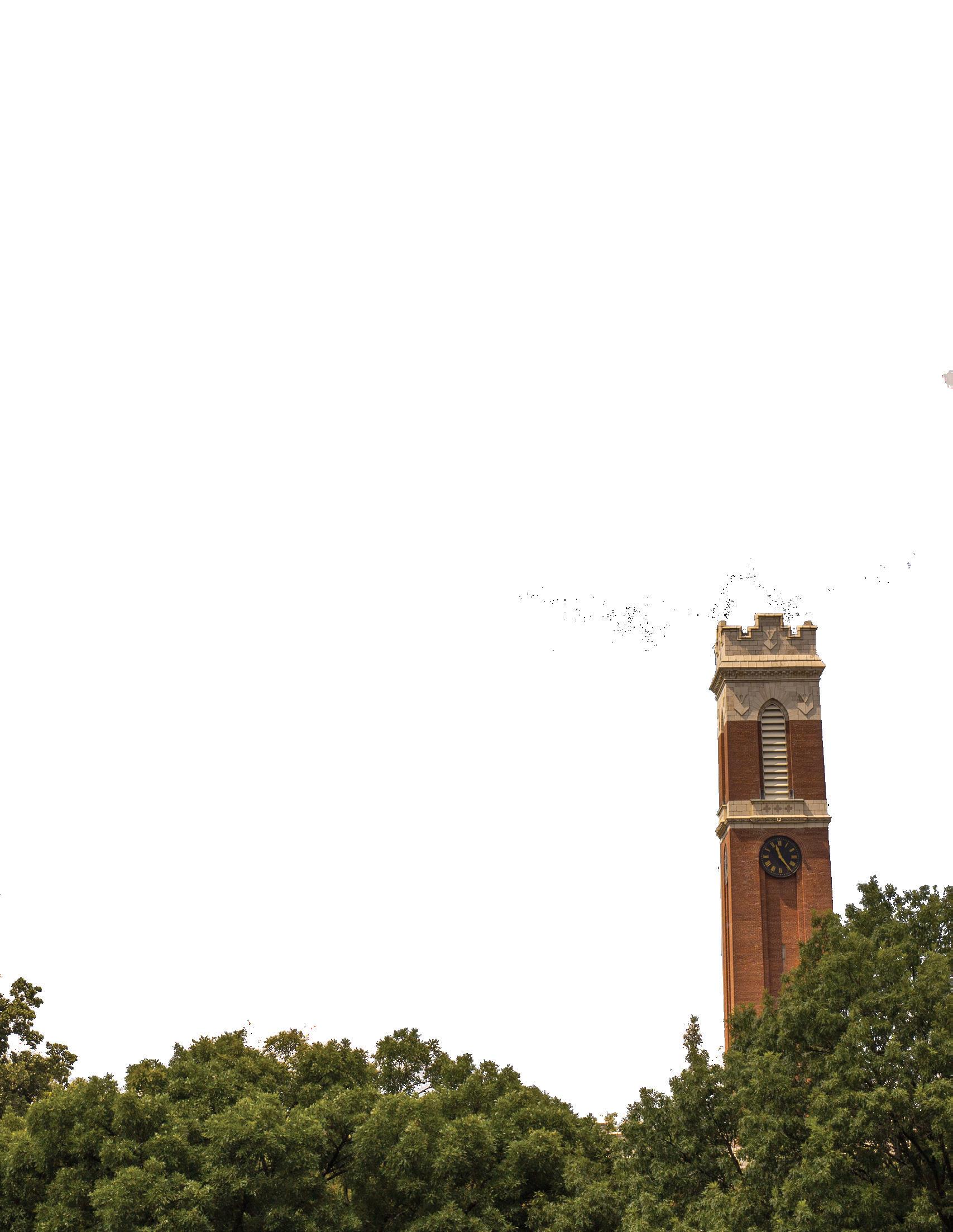
1,007
Vanderbilt Law applicants for the Class of 2027 took advantage of the opportunity to be interviewed by Vanderbilt Law alumni who conduct admission interviews across 40 states, D.C., and nine foreign locations.
4,801
Number of applicants to the J.D. Class of 2027
Vanderbilt University’s urban campus is surrounded on all sides by restaurants and shops. There is surface parking for students in front of the law school building at 131 21st Ave. South, with covered parking located nearby.
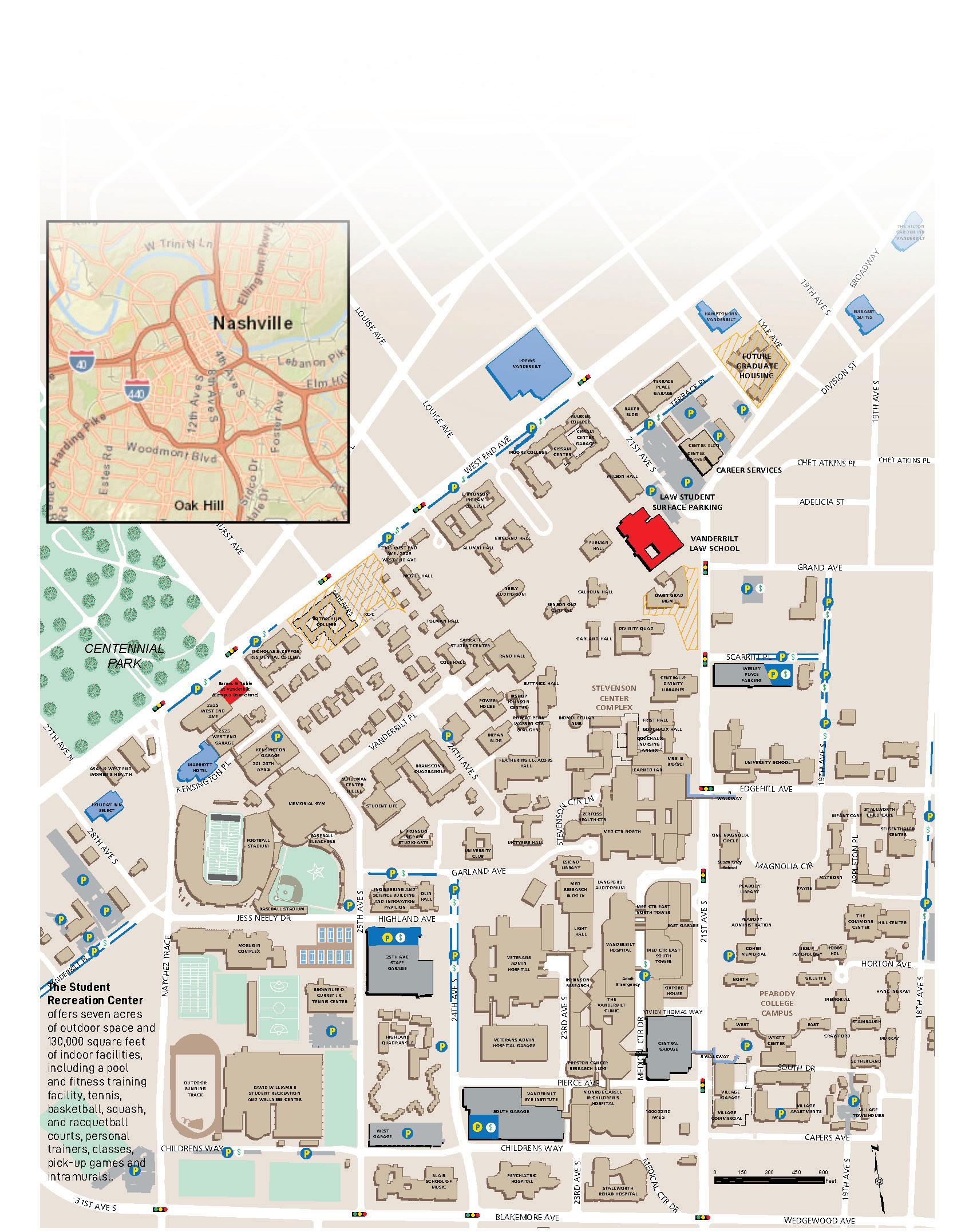
Getting to Vanderbilt Law School via the Interstates
From the north, take I-65 to I-40 east to exit 2O9B. Turn right on Broadway (U.S. 70S).
From the east or south, take I-40 west to exit 209A. Turn left on Broadway (U.S. 70S).
From the west, take I-40 east to exit 209B. Turn right on Broadway (U.S. 70S).
Once on Broadway, stay in the right-hand lane until you bear to the right at the intersection where Broadway splits into West End Avenue. Move into the left lane, and continue on West End Avenue to 21st Avenue South (a one-way street). Turn left on 21st Avenue South and drive one block. The law school is on the right. If the designated visitor spaces in front of the law school are full, you’ll find surface parking across the street and covered parking at Wesley Place.
